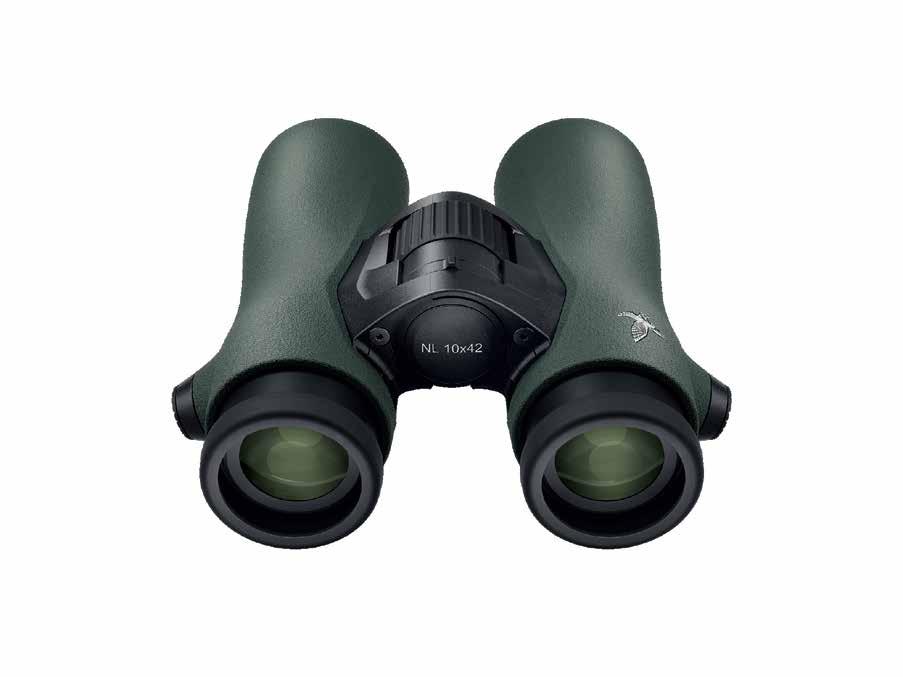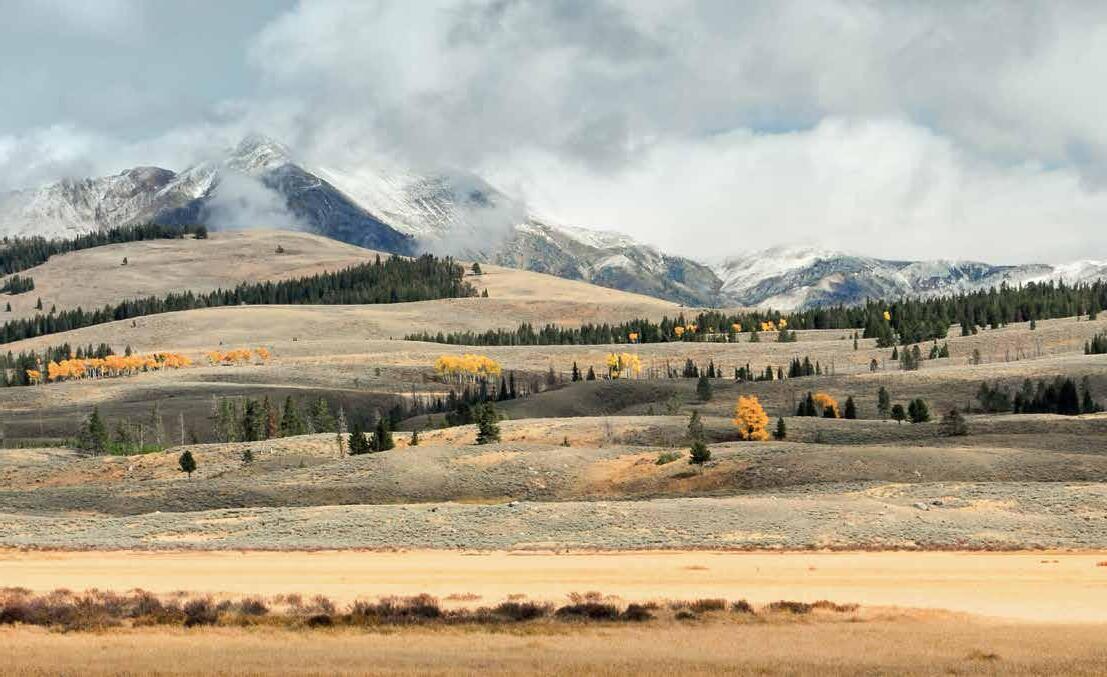




























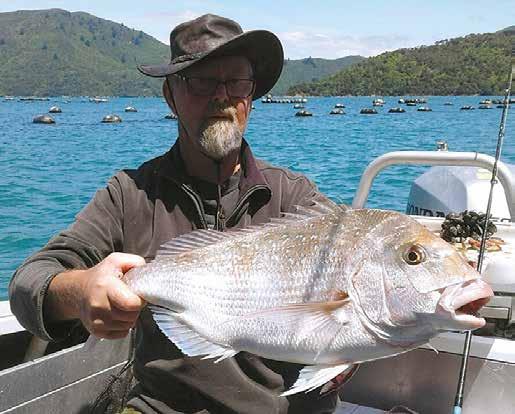
With clear skies and a
After a successful interlude, we resumed a course for Tawhitinui Reach and tied up amidst a mussel farm where we intended targeting gurnard. The berley was set, ledger rigs with 6/0 circle hooks were baited with small cuts of fresh mackerel and
cast out, and then it became a waiting game. Gurnard come in waves and can be present throughout the whole tide so it pays not to give up too early.
Piet had handed his rod over to ‘Rodney Holder’ to look after while he pottered about looking busy. It was a smart move because the rod doubled over and line peeled from the reel. Lurching forward like a man possessed, Piet grabbed the
rod from the holder and immediately knew he had a big snapper on—the telltale head shakes and nods were a dead give-away.
After a short but vigorous battle, the snapper broached alongside the boat and was hauled aboard— an amazing 11.1kg monster. Sometimes preparation pays off and time targeting fresh bait was certainly a great investment this day.
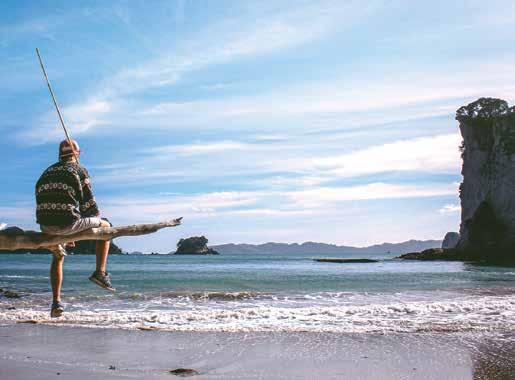
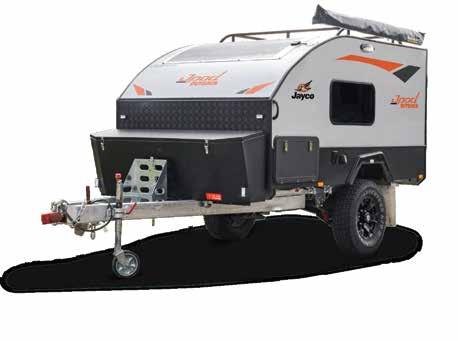
November has great feeding up for spawning in December.
Friday morning, Gus, Les and I headed off from Hira to the Nelson boat ramp. Once we worked out how to operate the parking meter, we slipped the Haines Hunter off the trailer and into the tide. Heading out through Port Nelson, the wind was picking up with white caps forming, although the forecast was only for 3 knots. We were hoping the wind would drop after the tide turned at 9.30am.
question? Some reports are saying off the bluff’s, then there are other reports for off Rabbit Island, but we decided to head out to the
20m line because I have had good success there this time of year in the past. I tend to use the contour lines on the chart plotter and look for different depths, meaning tend to feed on.
We dropped a set line in just in case the rods didn’t produce the goods. Then we got set up and sent out the lines with a mixture of pilchard and squid baits. Fortuitously, the wind to pull in a nice gurnard. pulled up the set line and increased our catch with a few more snapper.
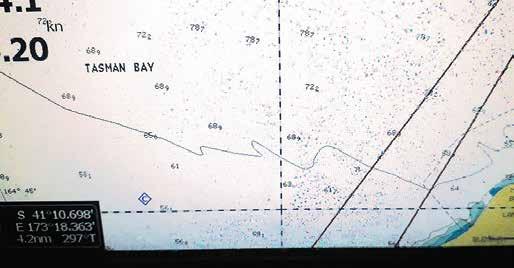
Kevin uses contours as a guide as to where to fish
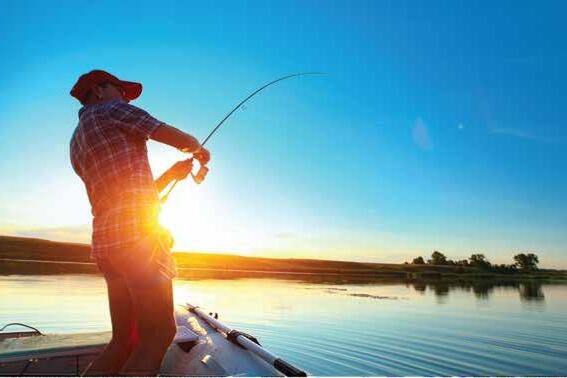




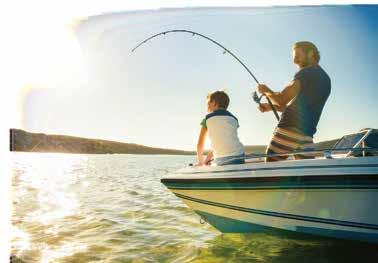
I have many interests but my favourite is to gather kai for my wh nau. We spend our weekends at the moana collecting kaimoana and
On Sunday, my dad had taken my siblings and I down to the Back Beach at Tahunanui for an afternoon of wind and the tide was just starting to come in. There were lots of people wind were the only ones there
I baited my rod and dad helped me cast it out. Dad was helping my little sister get her rod ready when I felt a huge tug. I yelled out to
“Sure you have—your bait replied.
It was pulling out lots of my line and it was hard work to get it to the beach. I was so excited to see a big tamure (snapper) at my feet.
yelled out to dad!
We caught a few smaller day.
We were having so much fun we didn’t realize the tide had come in and got all our gear wet. We nearly had to swim back across the channel to get to the car.
When we got home I helped dad get the tamure ready for the smoker. I can’t wait for lunch tomorrow.
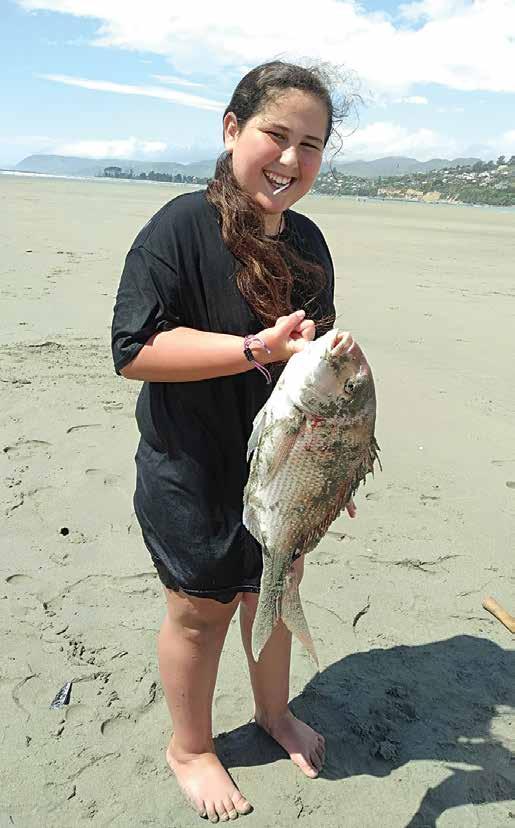





• 2.5 tonne braked towing
• great rock hopping ground clearance and super visibility
• 6 speed manual giving you total control
• anti braking system ABS
• ESP with hill hold/descent control • 2WD & 4WD options
all the safety features and mod cons you’d expect.
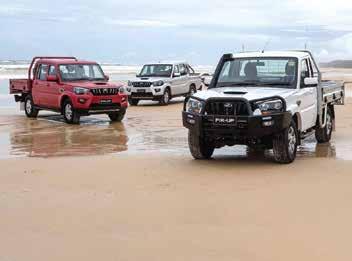



at the ramp and steamed
We tried one spot in 340m before moving to a little pinnacle I had squirrelled away in the grey matter for future exploration. The depth can be a bit of a gut buster but thank God for electric reels! Terminal tackle was a hefty 40oz sinker with two 13/0 circle hooks strung above—the good old faithful ledger rig. Drifting deep we were soon into bites and loaded up on
superb fresh. For those who looks like a fat barracouta, they are delicious baked, smoked or as sashimi. In no time we had our limit but it wasn’t all plain sailing. An inquisitive seal stood off, watching and waiting—until it heard the sound of the
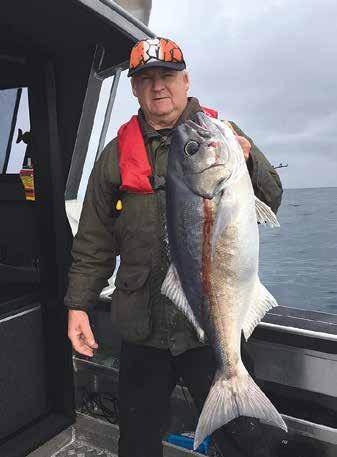
Cut:
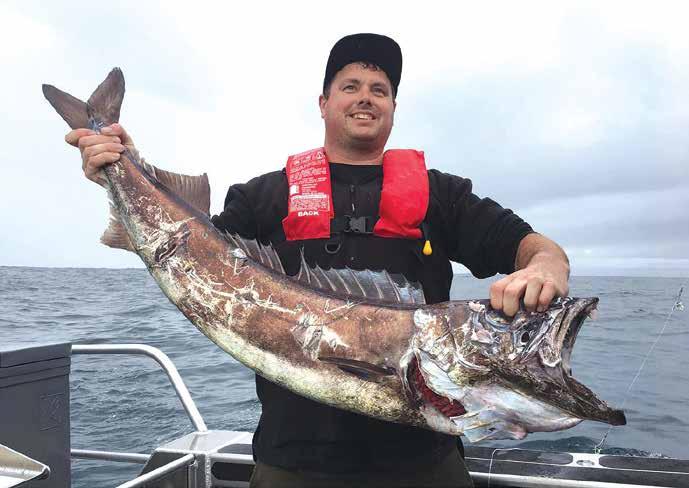
electric reels. I reckon seals in the area had become acclimatised to the sound and recognised it as a call to dinner.
As the big bluenose came to the surface, each weighing 4-7kg, the seal lunged at the throat, locked on and ripped
nuisance. We certainly had to ‘sing’ for our dinner that day.
However, the real highlight was a close encounter with a couple of humpback whales.
years but never have I been so close to these amazing mammals. They drifted right alongside the boat and whenever the big barnacle covered behemoths blew, the blast from the blowholes
nearly sat you on your arse; bloody hell what a foul smell!
And the noise. I assume
it was a male and female because only the bloke is vocal and this chap sounded like a rutting stag in full
and it put a nice frame around what turned adventure.
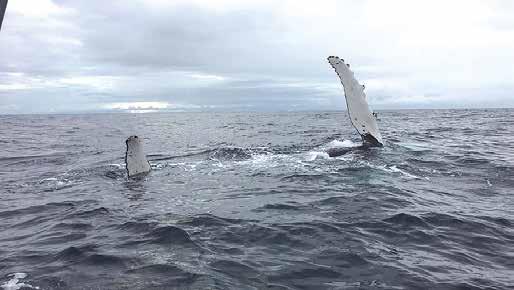
Ruby, don’t take your love to town
In 1977, as a 23-year-old, I joined the Northern Territory Police Force. The Ruthless and I had been living in Darwin for a couple of years, having arrived nine months after Cyclone Tracey bloody near blew the whole town away. It was a great place to live and the only
to get a well-paying job was to have a pulse. We were living in a caravan and happened to move it next door to a couple of NT coppers. “Why don’t you
So I did. After training I was posted to Darwin General Duties and it wasn’t long before I came across the subject of this article. Darwin had quite a few characters and quite a few more drunks. One of these was a part aboriginal lady called Ruby Willis. From what we could establish, Ruby was born in Barrow Creek in the mid 1930’s and ended up in Darwin living on the streets, in parks and anywhere else she took a fancy to. She would drink
anything that poured. Like a lot of town characters, rumours of Ruby’s past abounded. She was an exopera singer, she had been a high class prostitute who could tell many tales on Doubt any were true. Ruby was just Ruby—a local town drunk.
My first encounter with Ruby was when I got sent to a disturbance at a city intersection. There was Ruby half undressed, directing tra c and screaming abuse at any motorist or pedestrian she could see.
While putting her in the covered cage on the back of the F100 patrol wagon, she, at the top of her voice, told the neighbourhood I was taking her back to the cells to rape her. I really hope no one believed her.
At about that time my parents were in Darwin for my graduation from police training and had spent the day sightseeing and shopping. When they got home, I could see Mum was a bit wound up.
lady came up to me and said excuse me Madam, could I
“You’re just a f##king bitch more while poor old Mum was hot footing it in the opposite direction. You just met Ruby, Mum. I think the best was when one Saturday afternoon I got sent to a church in Darwin. Picture this. A bridal car was slowly driving back and forth on the street. The groom, his party, parents and guests were huddled together outside the church and the bride’s mother was beside herself. We went inside.
The organist was sweating profusely and it didn’t have
much to do with the tropical heat but scared to stop playing because Ruby, pissed to beat the band and half undressed, was standing on the front pew grooving away to the music and screaming abuse at the organist every time he tried to stop and escape. Another arrest, accusations we were going to rape her and another night in the drunk tank. Only in the Territory. If I remember some time, I’ll tell you how I accidentally arrested an overseas government minister. Hope you all have a safe and happy Christmas and I’ll hopefully, Crimpy willing, catch you next year.






























Right from the start I was chasing goals. I wanted
If it came easily, I think I would have got bored. effort are always the most remembered.
in my mind is the blue moki. They are unorthodox to target on rod and reel, needing special bait presentation to be caught. As I found out, they were inconsistent feeders. While
were adamant on feeding at dusk. I also had to learn to cast short, wrap a mussel bait up heavily to stop the bait and, after all that, wait
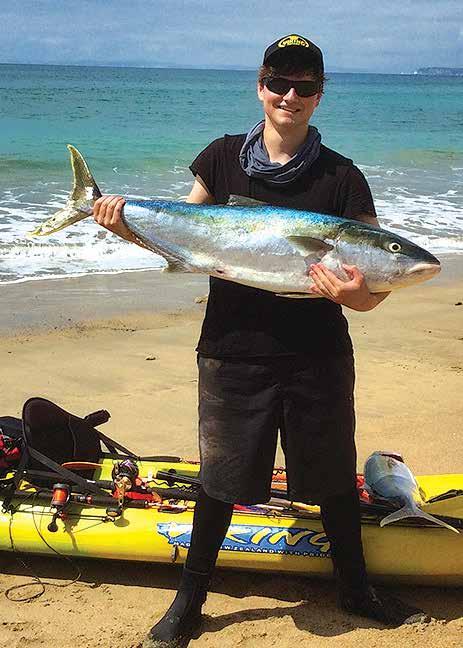
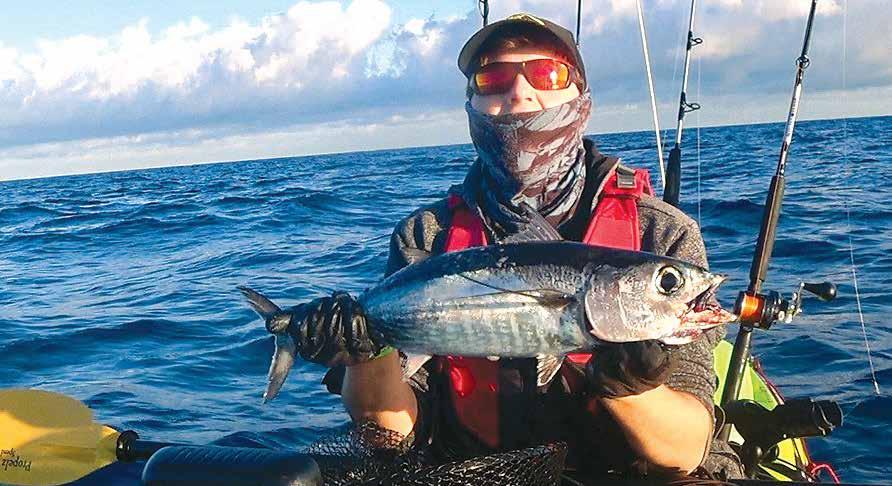
for hours for something to happen. It was a hard few years but eventually I had a couple of breakthroughs, ending in a 47cm moki to take for the table.
the most accessible predator
had a good shot at but, as the trips stacked up, I wasn’t catching any. I needed to focus on them. I only took a bait rod and my heavy set. I loaded up on live-baits before heading onto the water. In one week, I had caught two small ones. The following week I went back to the place I knew they were, hooked up and landed anchor and berleying to keep in the water was the reason
can’t learn if you don’t keep trying.
Albacore tuna for a long for me. I couldn’t organise a ride on a boat to catch one from Hawke’s Bay and I sure wasn’t going to paddle 20 kilometres out to sea. Taranaki, a place I visit yearly has the best I learned the ropes how
to catch the tuna for a few years before I was ready to venture offshore. Listening to other anglers’ tips was hugely important, as setting a lure with sticky sharp trebles, a genie clip, for movement and a light leader made the difference. When I arrived
giant tuna, everyone was
Although the enthusiasm from the night before had
he crawled into my car, I could tell he was regretting it. Thankfully after a coffee,

he started to liven up. We arrived at the beach and began spotlighting for some paddle crabs and quickly built up a nice collection. One of these crabs decided to give me a painful pinch have been his death wish go on a hook. The lines sat out for ages as we waited for the tide to turn and the sun to rise. Eventually, as we were putting the head torches away, I heard the faint sound that every angler loves... ZZZZZZZZZZ. I leapt up out of my seat and raced toward the bent rod. The
shark started splashing in the shallows and I ran down to grab it. As I looked up at Finn, I noticed his rod starting to bend.
as much theirs as they were mine.
list is the hapuka and boy has that been a challenge. I might have to do it on the kayak—boats are hopeless!
Challenging moki can cause the blues
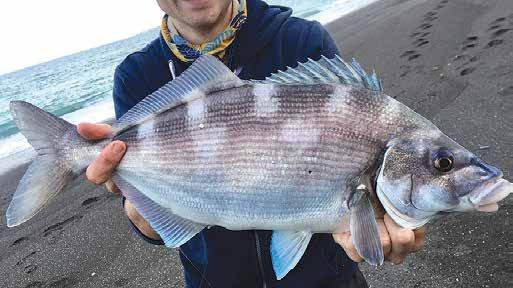
He stumbled over to the rod and struck. His went back to dealing with mine. However, when I looked back up at him the rod was doubled over and, with the drag being so tight, Finn was getting dragged towards the sea at an alarming rate. I ran over and loosened the drag, allowing
After a lengthy battle, Finn dragged a beautiful rig up the beach—he was ecstatic. and as the beach began to
snapper. The tiny snapper looked very sad being ripped away from its mum, so we quickly put him back to grow into a 20 pounder. It wasn’t the biggest haul, but it was a bloody good morning.
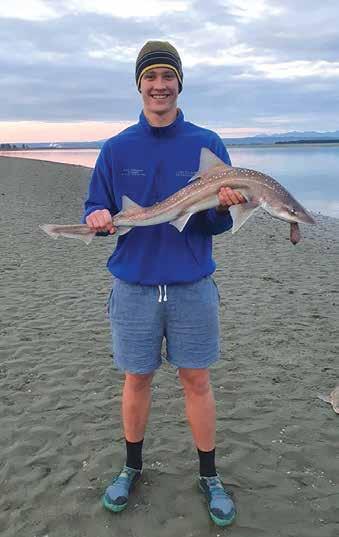

The ultimate combo of lure and rig, best shed with a thin strip of bait to help maintain the natural swimming action of the skirt





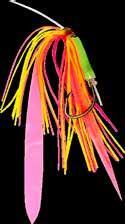
The original asher rig, hand rigged in New Zealand with Black Magic Tough Trace and high quality Japanese made hooks



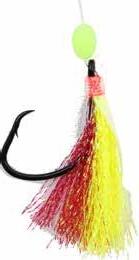
High quality sliding head jig with ‘cracked’ lumo e ect, highly re ective eyes and lumo skirts for maximum visibility in deep water





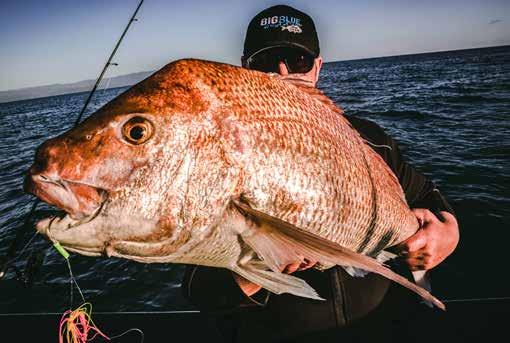
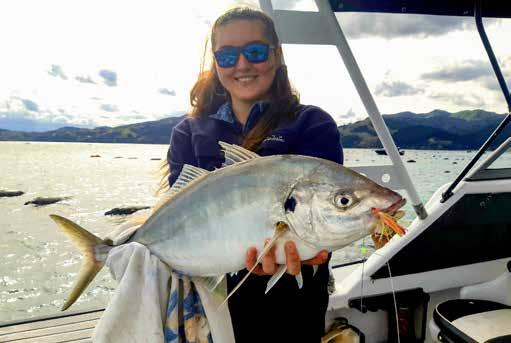
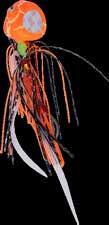
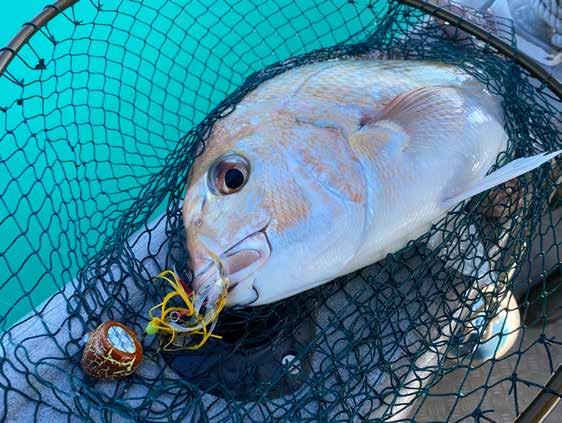
hand and a throttle in the other, all I need to complete the picture is a piano accordion and tambourine.
There’re animals aplenty out here, big game, small game—in theory, I’ll slay by my dazzling light. Theory is a fantasy. Reality is harsh.
My charger for the night is my old quad. It’s battered and poorly maintained. The battery mounted spotlight has just enough trailing wires to keep me tethered or tangled, or both. The vibrates on the back carrier, adding to the cacophony.
tyres and a rough and rocky 4x4 track makes for a hellish combination and I must mention there’s no reverse.
Then there’s Self—a one man band if ever there was. There’s ammunition rattling in my pockets and a knife and pouch on my belt. There’s a too-long centreshoulder to accompany the mounted on the front carrier.
I wear a funny furry hat to keep the over-sized headtorch from sliding down over my forehead and across my eyes. With a spotlight in one
I see critters. They see me. They stand and stare at this most unusual spectacle—for a short while.
Then I have to stop and have to turn the spotlight off and use both hands to
my shoulder, it knocks the head-torch over my eyes as it comes. By the time the trailing dust cloud has settled, the bike brake is applied, it needs two hands
and steadied and set to go, my adrenaline has surged and I’m quivering with buck fever and ready to jerk that trigger, oh yes I am.
Light on and go!
The deer have decided that remaining in my proximity may be hazardous and they’ve slipped quietly into the trees and vanished. Now I have to reassemble
For kilometres. For hours. Rattling and bouncing to the
tops and open country. Then there’s the come down. What goes up must come down.
The brake lever that needs co-ordinating along with the throttle, along with the one-handed steering, doesn’t work. The foot brake works but it squeaks and as the descent proceeds, for kilometres and for hours, the brake escalates from an annoying squeak to a fullblown high-pitched shriek. Lower gear doesn’t help, that just ups the revs and the motor temperature. Then the scorching exhaust slow-roasts my inner thigh. Wheels turning or wheels locked, gravity ensures we’re going down the steep rubbly track one way or another. If the bike is not shrieking I will be!
eyes, those eyes are peering backward over twitching rumps and/or above open mouths and lolling tongues as the deer have already run in headlong panic. I sure am rocking this stealthy nighttime predator lark!
my cunning plan. It came along for the ride so I could acquire some small game. I see some possums, some
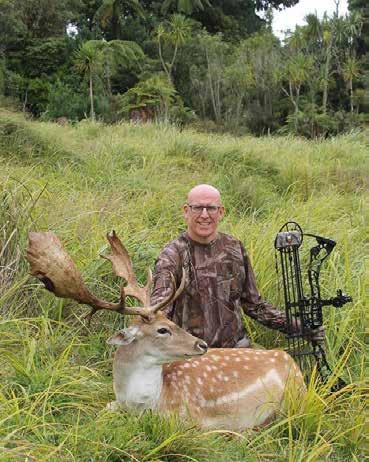


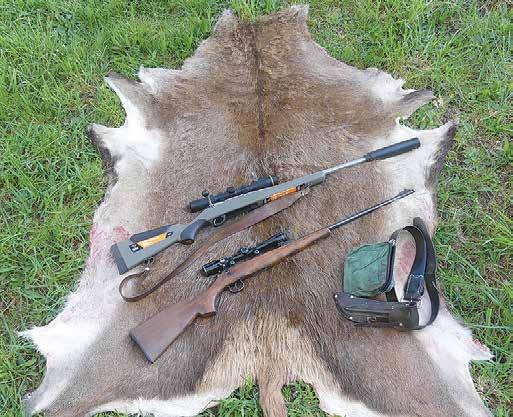
potential fur-cum-dog tucker but as I stand to grab the .22 from its insecure moorings afore me, I lean over the front springs and they groan aloud. This groan, or the click of my safety switch, is enough to send the nervy little critters bolting.
By now its Cinderella hour and I have only three unfortunate possums to my credit. This is ridiculous. I’ve had enough. Time for me and my lower lip to rattle, bounce and shriek homewards, scaring all and sundry before us.
Back we speed, spotlight

handed steering and top gear. Then the bike is loaded
mags out, bolts out, ammo back in its packet. The spotlight is stowed, the knife belt off and tossed aside. Warm bed, I’m coming home!
As I accelerate away from the locked gate towards home the ute headlights with spring grass. Two sets
Two large stags begin to pace nervously as I glide to a halt. In the following seconds I
gear for all the bits that make go dead.
Without a piano accordion, a motorbike or a length of spotlight wire to hinder me, I mag, work a bolt and then crosshairs.
Then, as per the One Man Band song, ‘the spotlight goes cold, the curtains come down, and the ‘deers’ are all stacked.’



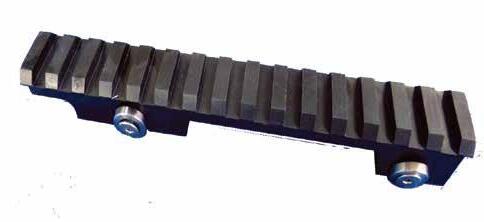
•

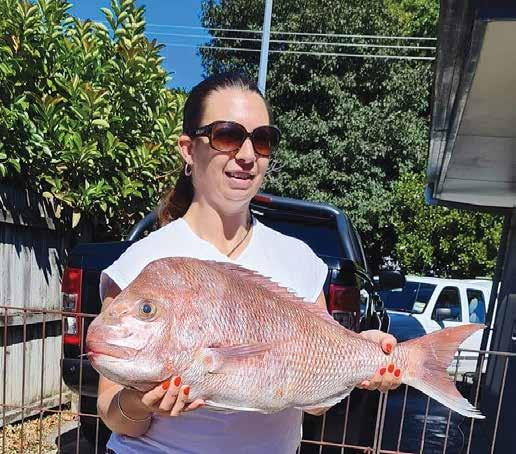

I entered every year and some years I didn’t even a great time, being out on the water is something we love to do as a family, and the Snapper Cup is a great opportunity for a good catch up with friends from the very pleased to say my luck changed completely with the 2021 Snapper Cup.
We got up early and headed down to the marina to jump onto Kayza, my inlaws boat. Brian and Andrea had slept in it over night at the marina, so we didn’t have to worry about lining up at the ramp, and they had the boat running ready to go when we arrived.
spot we dropped our lines in

the water at the competition waited for about an hour with not a lot happening (other than breakfast and coffee of course!). Just before the sun peeked over the hill, suddenly it was nonstop—we had multiple rods going off at once and good snapper coming onto the boat was great to see. As I was dropping down again, my line barely hit the bottom
This one took a bit longer to reel in and once it came to the boat and I could see it was much bigger than my
Once we measured it, I realised it was also my personal best, so I was measured 66cm long. It some but for me it was awesome—a great morning on the water with the family and, even better, it meant I
During the prize giving, the MC Murray Leaning
was the PB for the winner, I got a surprise thinking, “Are right before he called my name out. To top off a great day, my snapper took out 7th
Andrea (my mother in law) as we always are having a friendly on boat competition. I can’t wait until the next Snapper Cup now!
The 2022 Snapper Cup will be held on Saturday March 12 at the Trafalgar Centre. Registrations close on February 26th. There is an amazing prize pool so if
followed by a great meal, catch up with family and friends plus the chance to win big appeals to you, sign up now! Great Christmas gift idea too!
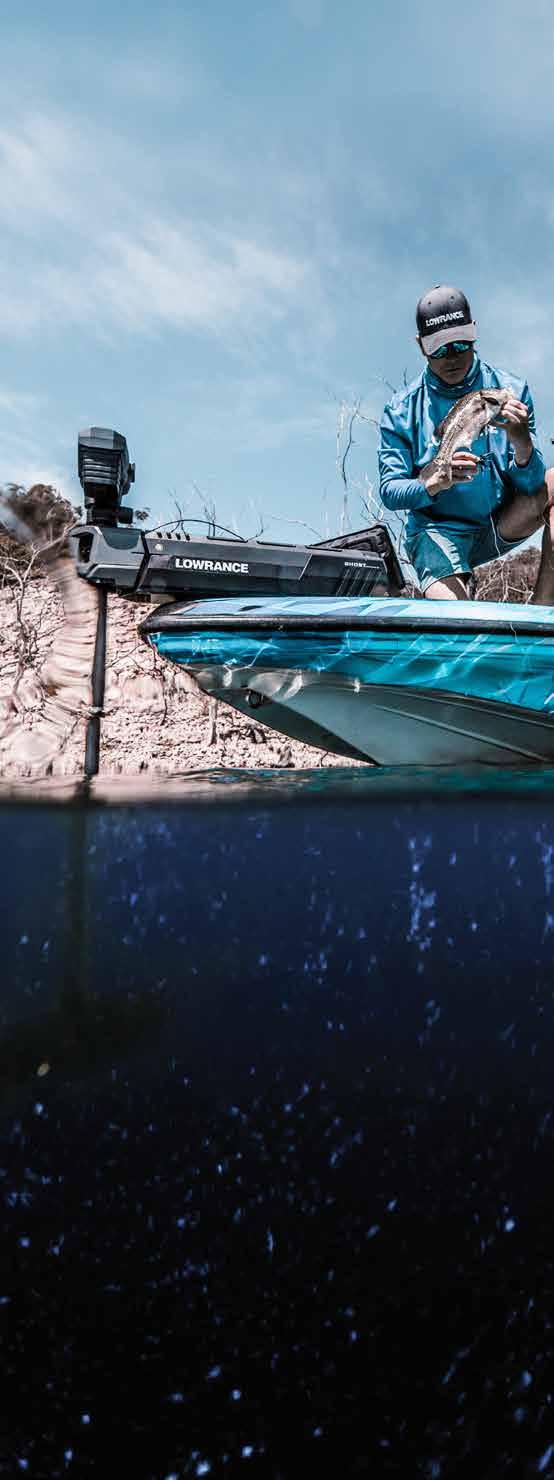
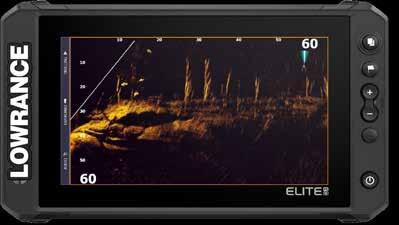
Here we are, three keen
mustard. Lewis Pass tops is training and red deer the target species.
Shannon and I leave Nelson, three hours travelling with a stop to carbo load at the local chippy in Murchison, arriving mid-evening to meet up with Torran. Once packed, sorted and formalities out of the way,
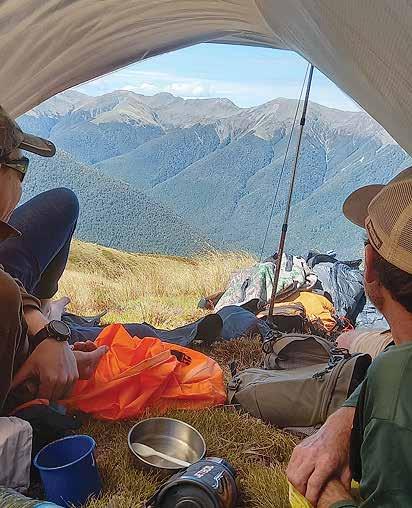
head-torches are on, GPS out and map and compass checked as we set off.
Starting at 620 metres and
metres, we had a fair climb, which started smoothly with light chatter and feet moving well. One hour into it we heavily and looking for a burger from the chippy had been digested at a rate faster than our climbing. We camped at 900 metres and I had a great night's sleep, however the boys were kept awake by a resident owl making sure sleep was not a happening thing in his territory. I did comment at least there would have been no mice crawling over them.
Up at 4.00am. Eat, JEDS coffee, pack and move out, heading for the bush line to catch up with our old mate
we usually see red deer two kilometres away and then spend the rest of the day trying hard not to be seen, heard or smelt in the hope we can close the gap for the perfect shot.
So huff, puff and a steady rhythm of climbing, and we reached the bush line right on time. Stop, look, listen, creep forward to gain
Sale As new Naiad Sportline 4.8 m
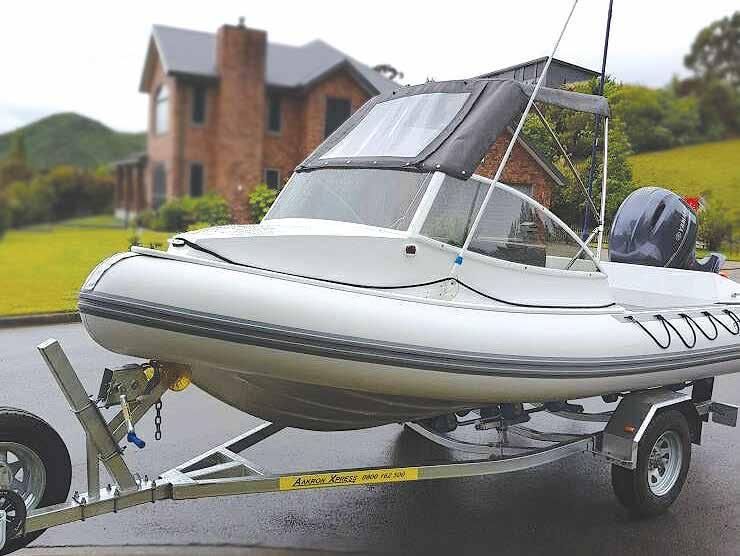
Launched December 2018, 90 hp Yamaha with electronic dash display —20 hours on the clock.
Soft grey pontoons and white topsides, seven seats, full dodger, Icom VHF, anchor chain and warp, road cover/outdoor cover, fenders plus line, mooring lines and brand new trailer Stored inside since purchase and serviced last spring A rare opportunity to purchase this ‘hard to come by’ model Only $64,500
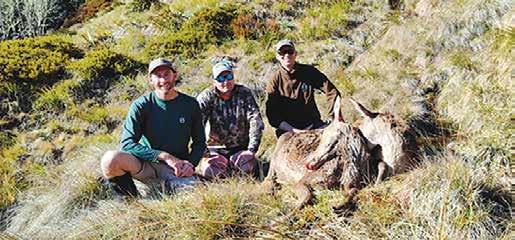
getting the crisp morning sun. Keeping within cover, bush behind so as not to give us away, we move off the position.
A yelp from Shannon hit my ear drums, “Get down,
That’s all I needed to drop and freeze. Ah, yes, I see them, three red skins, range whispered into my ringing
I set up ready to take a shot.
Across the gully, no wind, we’re in the shade, they are in the sun. One scarpered but two remained.
I’m going to be honest, I have years of bushcraft and alpine experience but I’m not a seasoned-hunter—I have been hunting for 10 years and consider this ‘fresh’ as far as most hunters are concerned. It takes decades to master the art of knowing where the animals will be but here we were, stumbling onto a treasure trove of free range red deer.
It doesn’t matter how many deer you have shot, there is a certain level of nerves and excitement before the trigger is pulled. Will they scent us and run? Is there wind? Will the sun blind my view?
I set up nice and quick but smooth, quietly but quickly opening the legs on the Winchester M70. Lay prone, comfort not an option, I committed the shot. she’s down.
“What about the other
Really? Does someone else want to take a shot? No, just do it.
Bang, whoomff, down. Then it hits me, the daunting realization our already full, heavy packs on day one are about to double in weight.
Congrats all round, shaking hours later, after reducing our deer to good pack-sized meat packs, we decided to head down the hill for an so, with full packs and yet another coffee on board, we descended to camp.
Morning struck way too fast and we dumped our packs and stalked the river
beeline for the swing bridge and the ute. Stoked our wives, partners and kids will probably get a surprise to see deer in the back of the truck. The meat will go towards our Christmas holiday barbeques for three families and help keep this red deer herd healthy by reducing their numbers. We divvy up meat and head our separate ways, leaving the Lewis in our rear vision mirrors as a closing memory.


For the Mustang, hunter, fisher, tractor, car enthusiast, man-cave and more, there is a sign here on display at our show room to suit everyone. New stock arriving daily now for Christmas so visit us at Ellis Street Auto, Ph 03 542 4035 104a Ellis Street, Brightwater, Nelson From only $30 these signs make amazing gifts


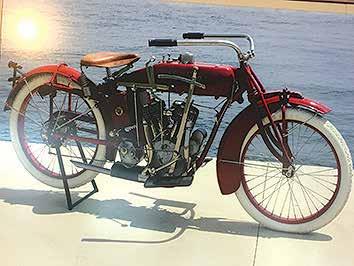


Kaikōura’s pāua fishery reopens on 1 December after being closed for five years following the 2016 earthquakes that caused significant seabed uplift and damage to the marine habitat
The decision follows public consultation and input from tangata whenua on recommendations from the Kaikōura Marine Guardians to reopen the Kaikōura Marine area to pāua fishing.
The opening for commercial and recreational pāua fishing covers the Kaikōura Marine Area and the northern coastline through to Marfells Beach and Cape Campbell until 28 February 2022 and will be closely monitored.
“We’re really excited about being able to open the fishery. The health of
the fishery will be closely examined to understand the e ect fishing has on pāua,” says Allen Frazer, Fisheries New Zealand’s Manager Inshore Fisheries South.
The closure of the fishery because of the earthquakes was unprecedented. Since then, research and monitoring has shown that pāua is recovering and can support some limited harvesting.
The cautious reopening introduces new rules and bag limits for gathering pāua along Kaikōura’s coastline which include:
• A daily limit of 5 blackfoot pāua per person
• A minimum legal size of 125mm
• An accumulation limit
of up to up to two daily limits of pāua per person. This means if you are gathering over two or more days you can only have 10 pāua in your possession, including at home.
• No taking of yellowfoot pāua.
Pāua fishers can expect to regularly see MPI Fishery O cers throughout the short season.
“MPI Fishery O cers will be out along the coast and on the water. They’ll be visual and checking peoples’ catch. If you’re unsure about any of the rules or how to harvest pāua, talk to one of our team.
Everyone who intends to fish for pāua has a part
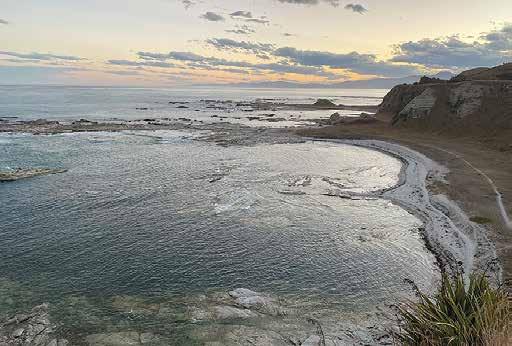
to play. The success of the opening and whether there’ll be future openings is reliant on people following the rules – they’re there to protect the resource,” says MPI Regional Manager Fish Compliance, Howard Reid.
A number of areas, including most customary fishing areas and reserves along the Kaikōura coastline remain closed to both commercial and recreational pāua fishing. For further details on fishing rules for this area and others, download the free NZ Fishing Rules App (fisheries. govt.nz/rules).
To report any suspicious fishing activity, phone the MPI 0800 4 POACHER hotline (0800 47 62 24).
As we head into summer and the weather gets better, many Kiwis will be planning their outdoor fun and recreation, including opportunities to head out for a fish with friends and whānau.
We’re very lucky in New Zealand – we have an extensive coastline that’s easily accessible for most people providing us with
opportunities to get out into nature and catch some kaimoana.
The key thing to remember is that the rules can and do change. So before you go, it’s always a good idea to check the fishing rules – especially if you are heading away from your region where there might be some local di erences.
Even if you’re taking a well-
deserved staycation this year, make sure you brush up on the fishing rules just in case they have changed in your region since last season.
Fortunately, there’s an easy way to get up to date and look after our fisheries – just download the NZ Fishing Rules App before you head out. It’ll give you all the latest rules
about catch limits, fishing methods, and restrictions in your area so you never get caught out. And once you’ve downloaded it, the App will work o ine.
The App will also give you information on any closures in your area. For example, from 11 September the east Coromandel scallop fishery closed for a period of two years, and from 1
December the area around Waiheke Island was closed to harvesting of crayfish and several shellfish species, including pāua.
You can also check regional Council websites for any region-specific restrictions or closures that they have in place.
Remember, do your part to look after your local fishery
this summer and follow the fishing rules. To find out how, download the NZ Fishing Rules App wherever you get your apps from and protect our kaimoana for future generations. You can also find out about the rules on our website fisheries. govt.nz/rules.

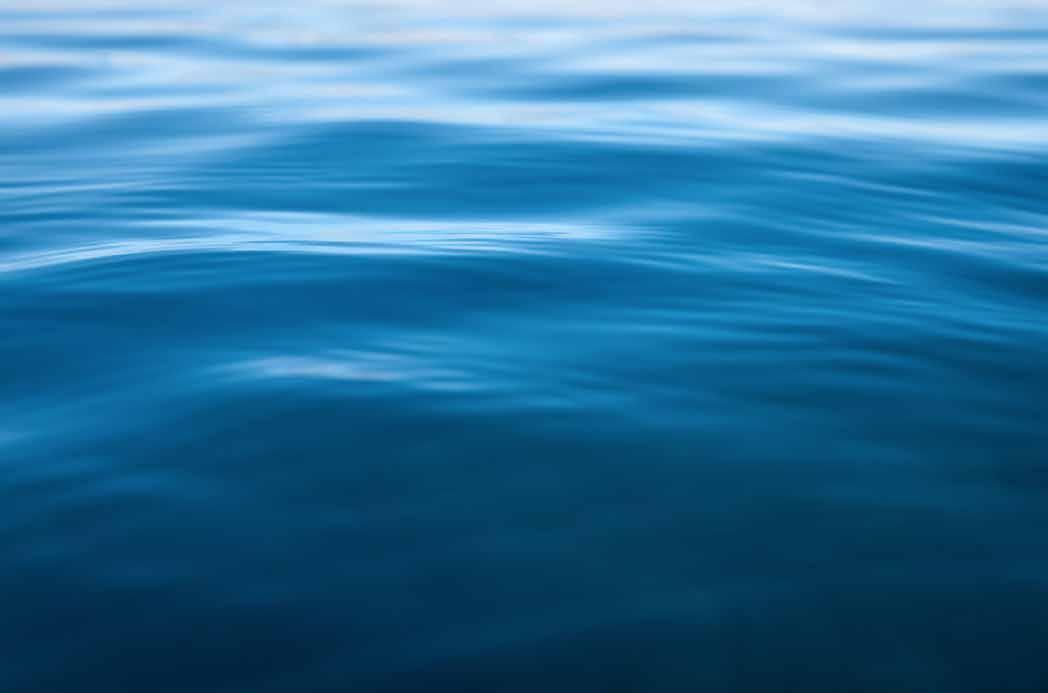
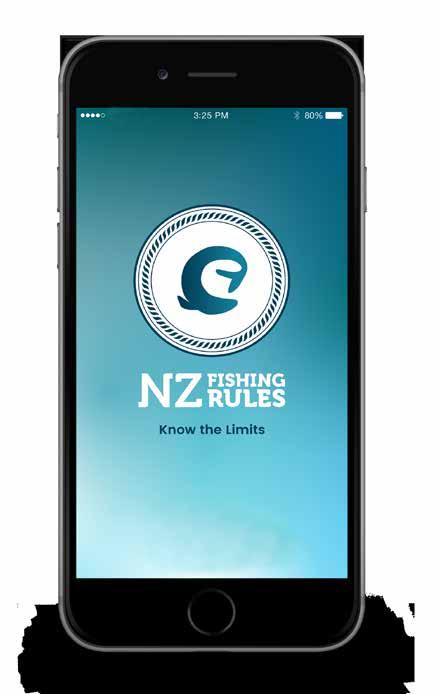
Starting in 1972, Oreti Beach near Invercargill and Bluecli s Beach to the west were intermittently closed and opened to toheroa gathering. Ministry of Agriculture and Fisheries surveys had backed up local Iwi and the community’s alarm that the beaches were being overfished, endangering that amazing kaimoana resource. The Ministry conducted toheroa surveys in between those occasional seasons to be sure the population of shellfish was healthy before any opening was allowed. A number of drivers for the population decline were identified, but illegal catch, beach tra c and over-harvesting featured strongly.
Then on Saturday 8 September 1993, a final open season of one day with a bag limit of 5 toheroa was held at Oreti Beach only.
Around 15,000 people were estimated to have turned up to get a feed on what was a chaotic day, despite the Ministry’s best e orts and planning.
limited and permitted harvest for customary purposes is now allowed.
The toheroa example highlights the problem of how di cult it is to responsibly re open a previously closed particular fishery, especially if is easily accessible.
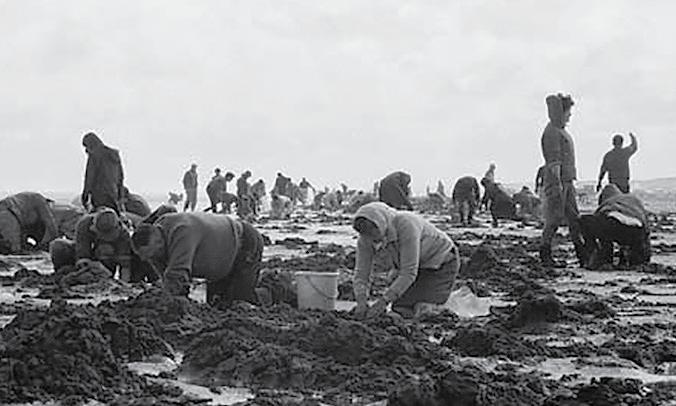
After that mad scramble by enthusiastic fishers, the Government was not prepared to risk reopening the Oreti Beach toheroa beds to the public. There seemed to be no way to avoid the classic tragedy of the commons e ect. They are still closed 28 years later. Only
When Fisheries New Zealand o cials and their Minister were presented with the task of reopening the earthquake closed pāua and kina fisheries on the Kaikoura and Marlborough East coasts you can bet that some of those o cials remembered the toheroa experience in the south. The risk of
an initial goldrush of e ort undermining the recovery and rebuild of a closed fishery is a big one.
For another example look across the Tasman to the WA West Coast Zone Roe Abalone fishery.
Roe abalone are a popular recreational fishery. Small and delicious and inhabiting shallow, mostly wading depth reef areas, the roe is especially vulnerable to overfishing. In the past this has lead to declines. So they now have a four day season, the first Sunday of each of 3 months where the fishery is open for one hour each day (between 7am to 8am) whatever the weather, and a fishing license is required. People have drowned in the scramble. But the Aussies haven’t figured a better response yet.
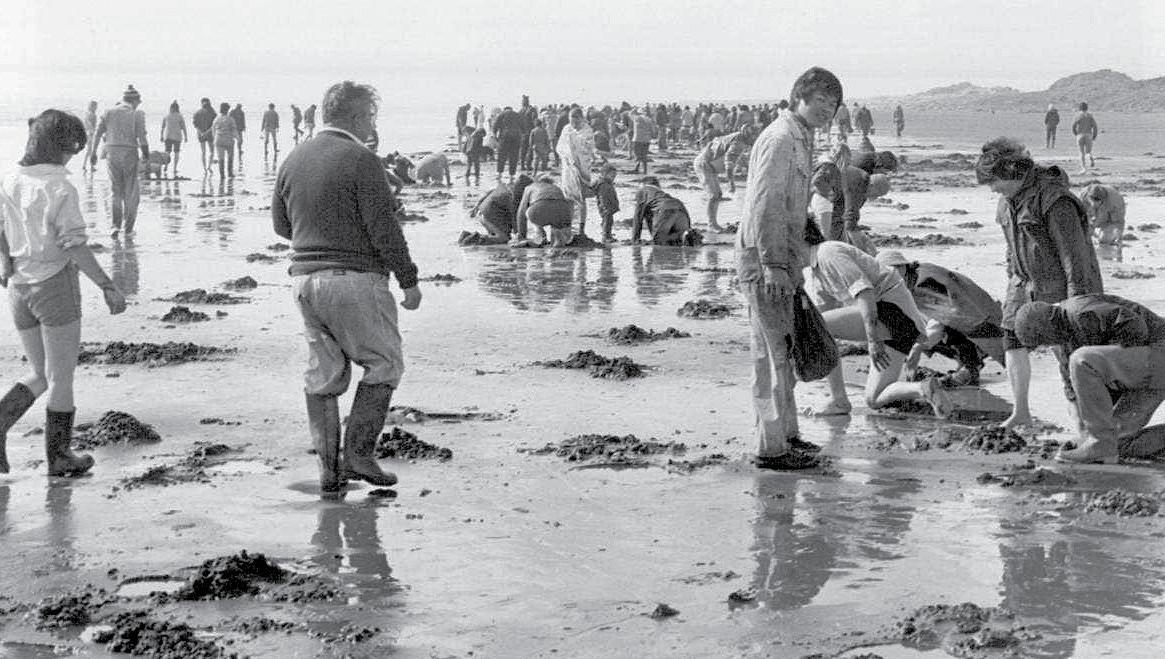
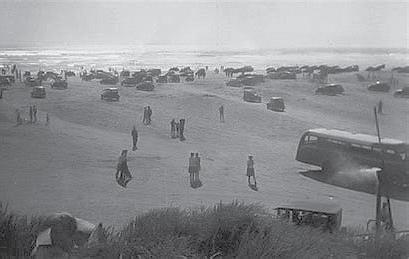
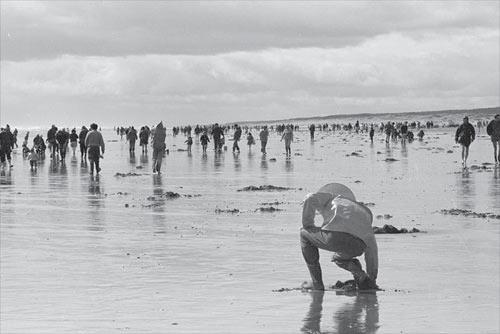
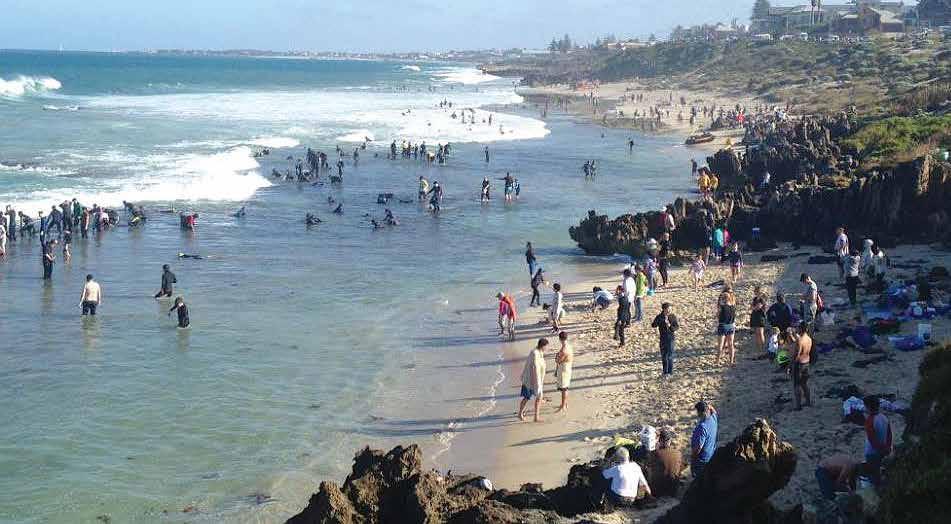
The reopening of the Kaikoura marine area pāua and kina fisheries has required the Minister and his o cials to therefore try and find a balance. The fact that there has been a strong pāua population recovery at Kaikoura and around Cape Campbell means there that there is an opportunity to harvest some, but at the same time a need to make sure the ongoing recovery isn’t wrecked by taking too many. Te Korowai puts it well when they talk of an adaptive rebuild strategy for the fishery. Over time, as the fishery is proven to grow, then catches might be safely increased.
The fishery is now open for an initial three month season over the summer, with Ministry rules in place. We welcome that, and especially the reopening is welcomed by those who live in Kaikoura. Three months seems a good balance between providing an opportunity for people to enjoy some pāua harvesting, and avoiding a race for fish. But importantly the shorter season provides
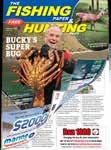
scientists the chance to assess the e ects of the season in time for management decisions for the following season.
For recreational fishers a daily bag limit of five is in place, scientific surveying is showing that overall the pāua at Kaikoura are larger, so even a few will still provide a good feed.
Thinking ahead though, what happens this summer will directly a ect what happens in any second season, from October 2022 on. The Minister has said that he will be closely scrutinising the results of the post season research into the e ects the three months of fishing had. And that will be used as a basis for any management measures for season two. Remember that this season’s reopening is for a one season. The next is a new decision making process.

Some tips on how you can help ensure that season 2 not only happens, but is better than this years.
- Take fewer, larger pāua. Its not compulsory to get the bag limit every time you go out. Just get enough for a feed. The minimum size of 125mm is just that, a minimum. Catch larger fish and you not only get more meat per fish, but also leaving some behind lets them spawn before the next season.
- don’t take all the fish in a patch. Pāua need to live in aggregations to spawn successfully. Take a few, but leave the rest and move on.
- take them o the reef carefully, don’t cut them or wrench them o
Preferably measure them before removing them from the reef. Use
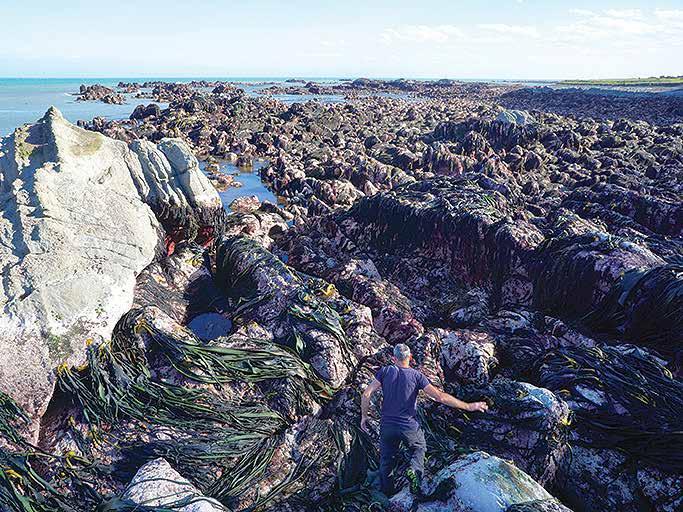
the free Ministry harvest tool. And file the measuring gap a few mm so you are taking pāua bigger than the MLS, less chance of mis measuring and taking undersized fish accidentally.
- There will be research teams out surveying catch levels over summer, help them out by volunteering accurate catch information so good decisions can be made for next year. We have all been waiting for five years for the return of the Kaikoura and Marlborough east coast pāua fisheries, so to be rewarded for that patience is great. Enjoy the experience, explore this changed fishery and have fun catching a feed. But remember that what we all do this season will determine what the next looks like. Have fun on the coast and Happy Christmas.
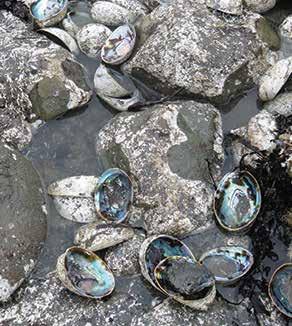
December 2020, aggregations of adults out in the open 4 years after the closure.
Aggregations like these are vulnerable to overharvesting, so only collect a couple of biggies and move on
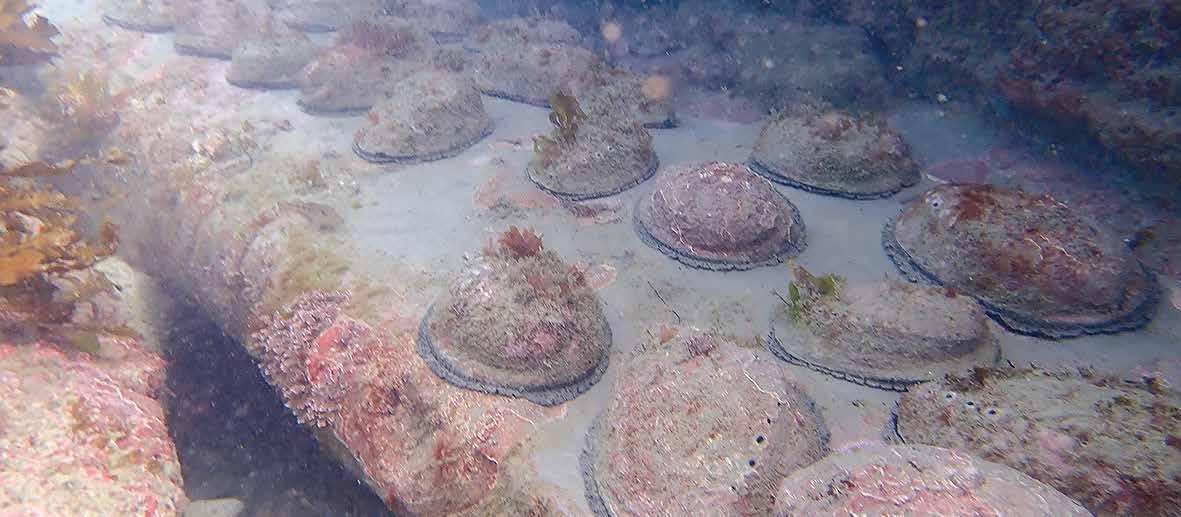


The ethos of good stewardship embodies responsible planning and management of resources. A number of community groups and organisations throughout New Zealand have undertaken to apply stewardship on land and in the marine space.
In Kaikoura, the process was led by Ngati Kuri with the support of the Kaikoura community to form Te Korowai o Te Tai o Marokura (Te Korowai). Since 2002, Te Korowai have led the e ort to enhance the role of local leadership to achieve a flourishing, rich and healthy marine environment. Their strategy was implemented as the Kaikoura (Te Tai o Marokura) Marine Management Act 2014, in recognition of the global significance of the Kaikoura region.
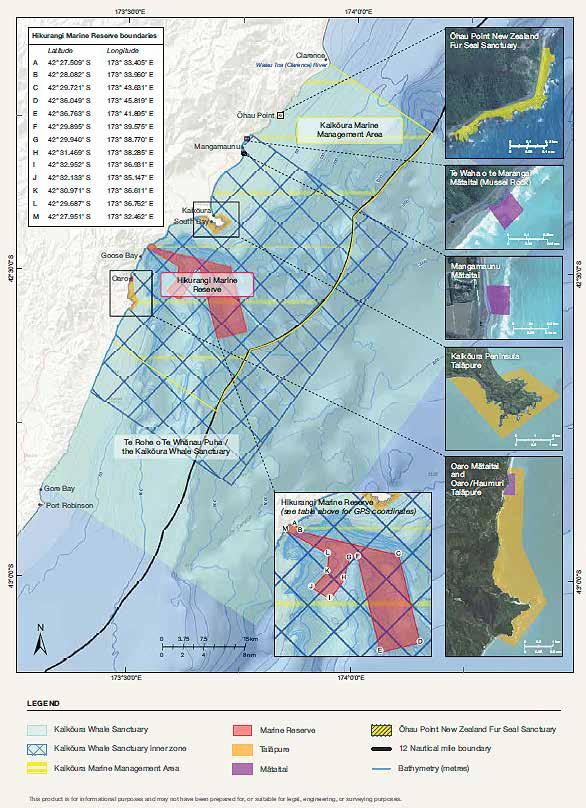
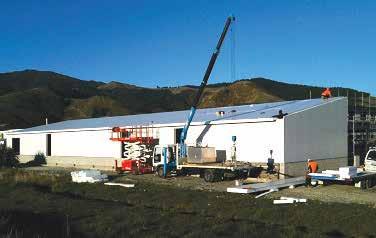

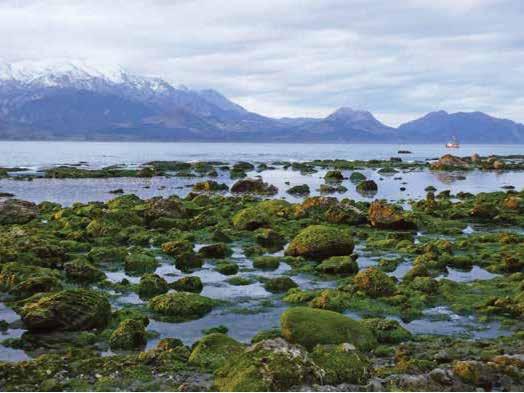
The main role is to engage the Kaikoura community in developing practices for improved management of the sea and address current issues and long-term strategies to sustain the environmental health of our coast and catchments.
The aim is to foster a cooperative and integrated approach to achieving management objectives
In order to provide a wider voice to Te Korowai, the Kaikoura Marine Guardians were established in 2014. They are appointed by the Ministers for Conservation and Oceans and Fisheries to advise the Ministers on any matter that a ects the Kaikoura marine area.

The scope of the Guardians is set by the Act, and represent the interests of Te Runanga o Ngai Tahu, the Kaikoura community, biosecurity, conservation, education, environment, commercial fishing, community, recreational fishers, marine science and tourism interests.
The Act established a number of marine protection and sustainable fisheries measures and include:
• A NZ Fur Seal Sanctuary at Ohau Point;
• A marine reserve encompassing the Kaikoura Canyon to the shore;
• Two taiapure- local fisheries;
• Three mataitai reserves.
In addition, the Guardians have been seeking World Heritage Status for the region as well as being intensely involved in the post-earthquake remedial research as well as ongoing research needs for the region which included ensuring that the fisheries resources were protected through closures and a managed approach to opening them. The pāua fishery went through a consultation phase and has just recently opened. As with many organisations, the Guardians will go through a statutory review phase, but will continue to be an integral part of the Kaikoura community to help manage the marine and coastal environment and unique biological features across historical, cultural, spiritual and economic significance.


We set it up on a tree next to a track front of it - admittedly we did think that this may end up draining the but left it there anyways. To our surprise it did not drain the battery and there were not that many photos of nothing!
But there were some good shots of a good eight pointer as well as other animals passing through the area. As you can see the night photos are very clear and have lots of detail of the shot - name of camera (if set), temp, time, battery status etc and the day photos are even clearer. These wee cameras are all round a great investment!

Brian Bishop
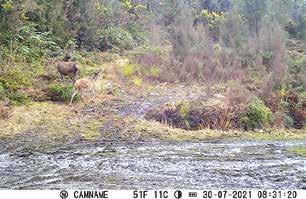
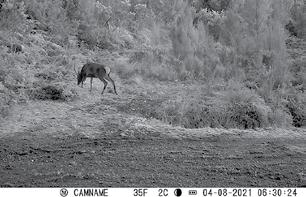
medium and 3 small; the large being up to 32 round and small up to 12. So they always
really burns. To say nothing of the laughing and thanks from the rest of the squad.


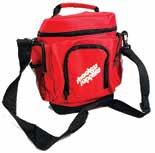

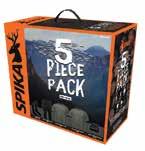
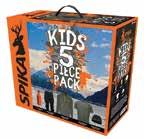

The South Island IPSC Championship’s this year were held in Invercargill, so involved quite a road trip for me and four others from my club in Nelson. However, it was worth the trip. I have a real South Island Champs, because the numbers from the North were very low. Some were missed, but others not so much—sorry!
There were twelve stages over the two days. These run to a pattern of 1 large, 2
24 etc. This is done so that it spreads the challenge and that the large stage doesn’t get to be too big a part of the match. Distances to the targets will vary, as well as both the size of them—to say nothing of the odd mover and turner. Each and has different challenges; some look a lot easier than they are and if you don’t show them the respect that they deserve, it will make a fool of you and drop you right out of the match placings but that’s all part of it.
Walking on to a range and getting a short brief, which covers start position and gun condition, (loaded or not) then 2 or 3 minutes before shooting starts for you to work out the best way to shoot the stage. Have you seen all of the targets for all the possible angles, do you take the longer shot or run more so it is shorter? Miss a shot and you lose a lot of points—miss the target all together and that

With everyone shooting together, this is a very inclusive sport where we don’t ask anything other than you shoot safe and follow the rules. Safety being very important and is monitored very closely by our range staff. I am proud to say all members from Cable Bay won some bling, so congratulations and thanks to everyone who helped in the running of the match. A special thanks to the cooks and those who were there know why. Too bad for everyone else, you missed a treat.
So how about giving it a go? New year—new sport. With great people to meet and it is not as expensive as you might think, (unless you want it to be), there are clubs all around New Zealand. Good gun control starts with good training and clubs are a great way to get that.
Have a safe and happy Christmas and catch you in the New Year.






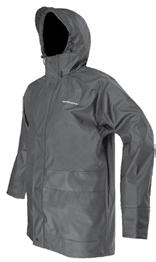



The festive season is once again upon us and with it the end of the old year and start of the new. It is a time
time to look forward to the future.
This last year has seen
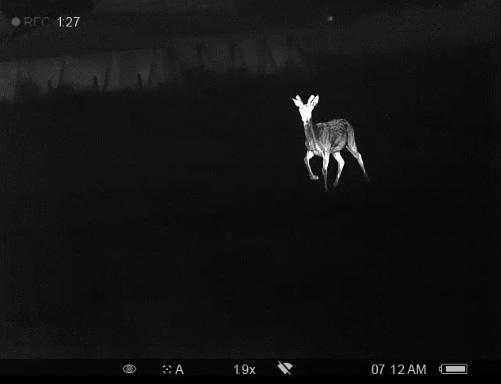
FOCO-OPTIK are an authorised New Zealand dealer of new and clearance Pulsar and Yukon products. Clearance products include ex-demo, overstocked, discontinued products and package deals.
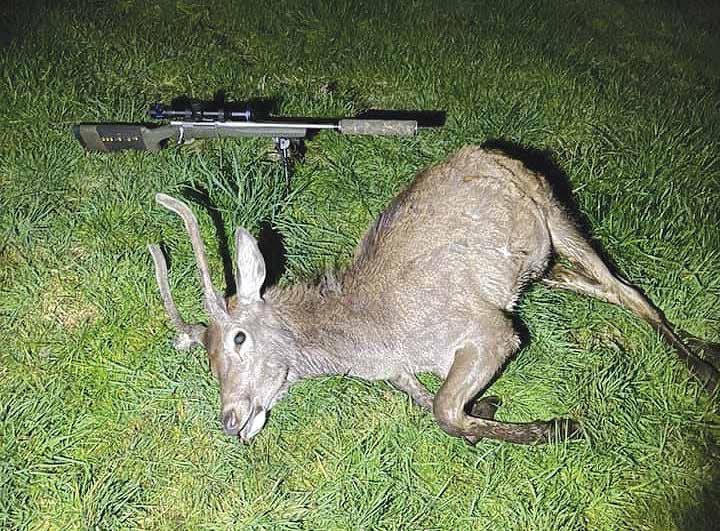
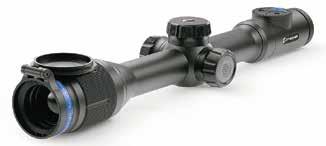

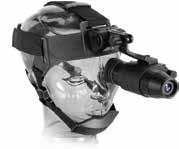
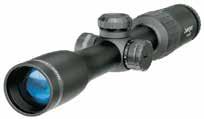

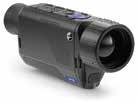

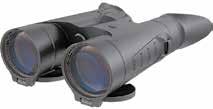

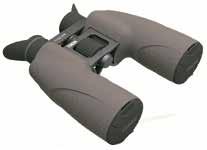


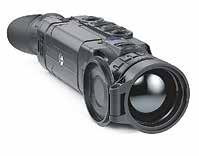
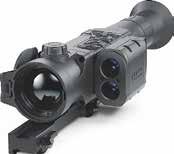





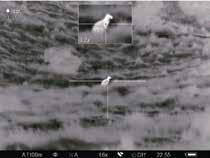


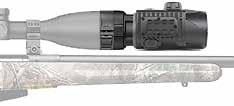



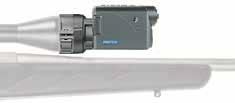


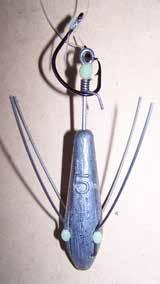
heat of the catch.
The headquarters for the competition weigh ins and prize-giving will be the Pub n Grub Hotel at Mokihinui.
Regulars in the competition will note a change in the rules.
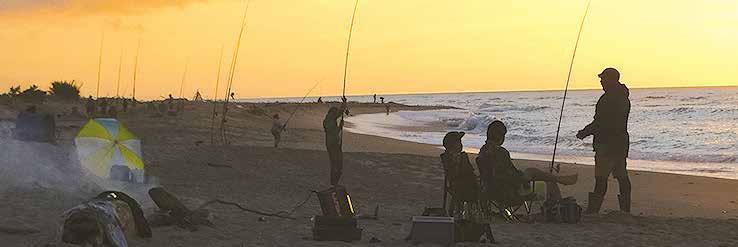
Total Prize Value over $3300 Entry Fees: Open $20 Junior $2 Electric Kontiki $20
The ten-day competition from 26 December 2021 to 4 January 2022 is a challenging one given the nature of West Coast beaches in the area. Many are a mix of sand and ever moving pebbles, a deadly mix for
Stingrays and eagle rays are ineligible and will not be accepted at weigh in.
The area has spacious camp grounds, making it a great destination for road trippers
Unfortunately access to Gentle Annie Beach is along the narrow De malmanche’s Road. In view of all the
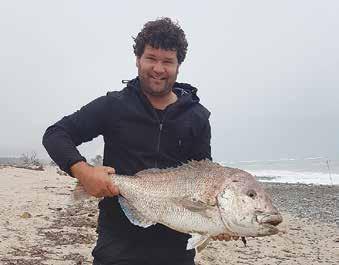
down at the shoreline. That is why long rods, around the 14 foot mark, are imperative.
Sinkers need to be real grippers as the rip and turbulence at times can be excessive. The Gentle Annie Beach with its steep drop off is particularly dangerous so caution is urged, but is sometimes forgotten in the
mishaps on this road, hopefully, the Buller District Council will install timed lights in the critical area, as I discussed with them earlier in the year after the spate of accidents during the holiday period.
Good luck and stay safe, on the beach and on the roads.
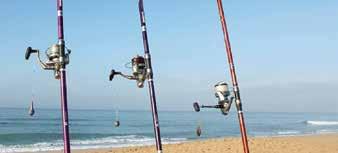

Major Sponsors 10 Day Competition 26 Dec 2021–4 Jan 2022 Weigh-in and prize giving: PUB N GRUB Mokihinui SEDDONVILLE HOTEL & MOTEL UNITS knudsen sports & Toyworld

Sign was prevalent, with tunnels and tracks through the scrub and wallaby poop everywhere but, to my surprise, nothing
two hours of creek travel I climbed up a ridge to give myself a commanding view over a gully either side of me.
Finally, I spotted a wallaby on the other side of the gully, however, I wanted to have a look for a deer before I
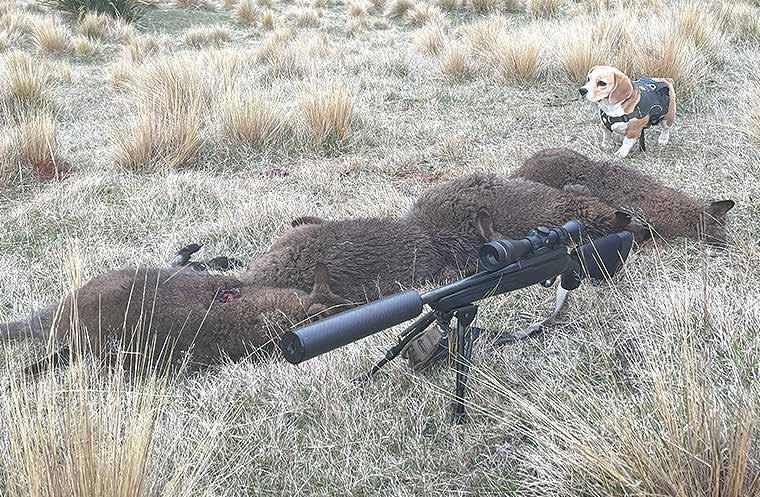



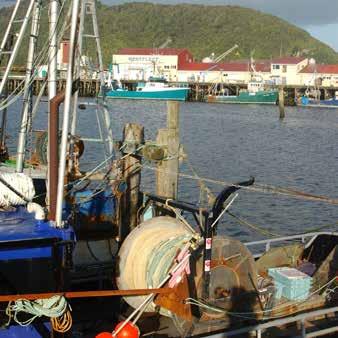
opened up on the wallabies. After glassing with no further animals spotted, I stood up and a wallaby bounded away 20 metres away. Temptation got the better of me and I swung the .270
it cartwheeling into the tussock. At the shot, several others appeared and I picked them off at ranges out to 200 metres.
As the evening wore on, more and more wallabies appeared. Seeing four in one area, I set the .270 up on a rock and managed to bowl the whole group. Soon I’d burnt through a whole
20 round box of ammo and wished I’d brought my .223 and more ammo, as I could have shot twice as many. I’ve been told they’re okay to eat but I wasn’t game enough to try any myself. I took as many back legs as I could for dog tucker though! It turned out to be a very enjoyable afternoon and I’d encourage anyone to get out there and give wallaby hunting a go.

















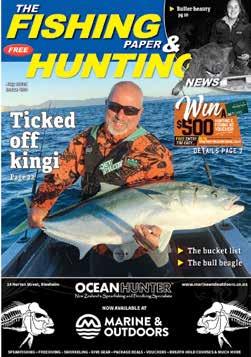

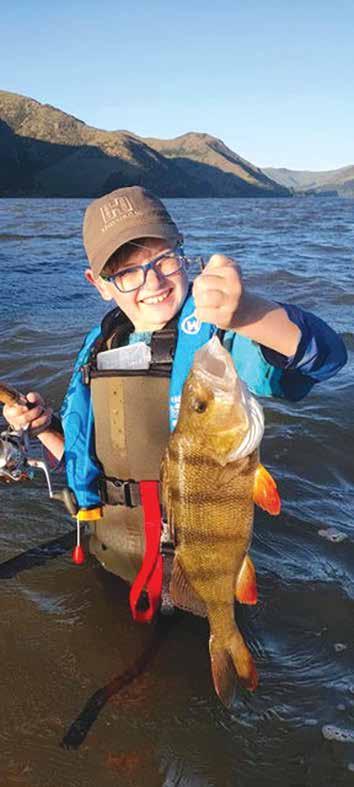


Previously, Fish Mainland asserted that 2020 would be remembered as the year of the COVID-19 pandemic and a time when government actions had the most (potentially) adverse impacts on South Island marine recreational fishing.
Just to recap, the proposed Marine Protected Areas in the southeast would lock up in perpetuity some longstanding recreational fishing areas, including those adjoining Dunedin.
Also, the National Blue Cod Strategy reduced South Island daily bag limits by 50 to 80% while North Island limits remained unchanged. The Strategy also ended filleting at sea, while fishers no longer can transit through an area with a larger catch taken in another area.
Furthermore, the set-net ban precluded recreational netting even in estuaries and inlets where it has been done for over 100 years without any dolphin sightings, let alone mortalities, while forcing fishers to net o shore in known dolphin habitat. 2021 will be remembered not only as the year the
government’s COVID-19 strategy shifted from elimination to suppression, but also a time when the government continued to adversely impact recreational fishing.
Currently the government is considering action in response to some unethical fishers having taken excessive amounts of North Island unprotected finfish species and, therefore, are vulnerable to localised depletion.
But Fisheries New Zealand did not stop with the obvious solution, which is to propose daily bag limits for individual unprotected species. Instead, they have proposed a regulatory amendment ‘so that a [regional] combined daily bag limit applies to all species unless specifically excluded.’
In short, the primary proposal would either add the unprotected species to an existing regional combined daily bag limit, or worse yet (Fisheries New Zealand’s preference) would expand the combined limits to also include those species that already have individual limits.
The secondary proposal included retaining the
regional combined daily limits or reducing those limits now at 30 fish per day to 20 fish solely for the purpose of ‘nationwide consistency.’
The result of these onesize-fits-all proposals would reduce the daily quantum of fish that fishers can lawfully take and therefore, erode their current level of access to fisheries resources.
Fish Mainland strongly supports immediate action to limit the take of unprotected finfish species. But to achieve Fisheries New Zealand’s stated purpose of ensuring ‘reasonable levels of utilisation’ for recreational fishers a broader discussion is needed regarding the management of finfish species.
Broader consideration should be given to the take of finfish species by other sectors that may pose even greater risks to species sustainability. A further consideration is the evidence that certain land-based activities pose increasing risks to the sustainability of several species important to all fishing sectors.
Stated another way, rarely,
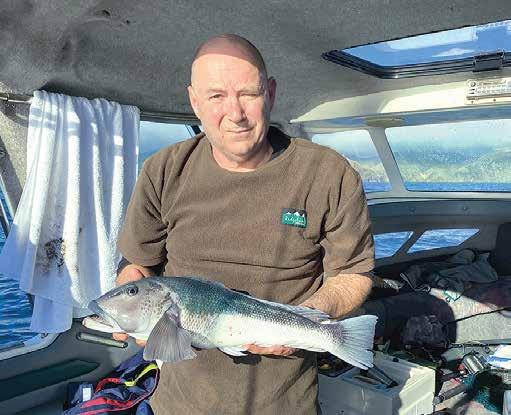
if ever, is there evidence that recreational fishers are the sole cause of the decline of fish species. If there is a problem with recreational catch levels, it should be mitigated with an individual species limit, as has been done with blue cod and most other species important to South Island recreational fishers. With that said, recreational
fishers remain a relatively easy target for government actions, since historically their voice has been unorganised and dispersed. Therefore, Fish Mainland has an important role in relaying South Island fishers’ collective voice in fisheries management processes.
In addition, the recreational fisher self-reporting system that Fish Mainland and
Fisheries New Zealand are currently developing and implementing will aid in providing evidence for possible future changes (increases or decreases) in daily individual or combined limits in South Island fisheries. This system will feature in The Fishing Paper & Hunting News’ January 2022 issue.
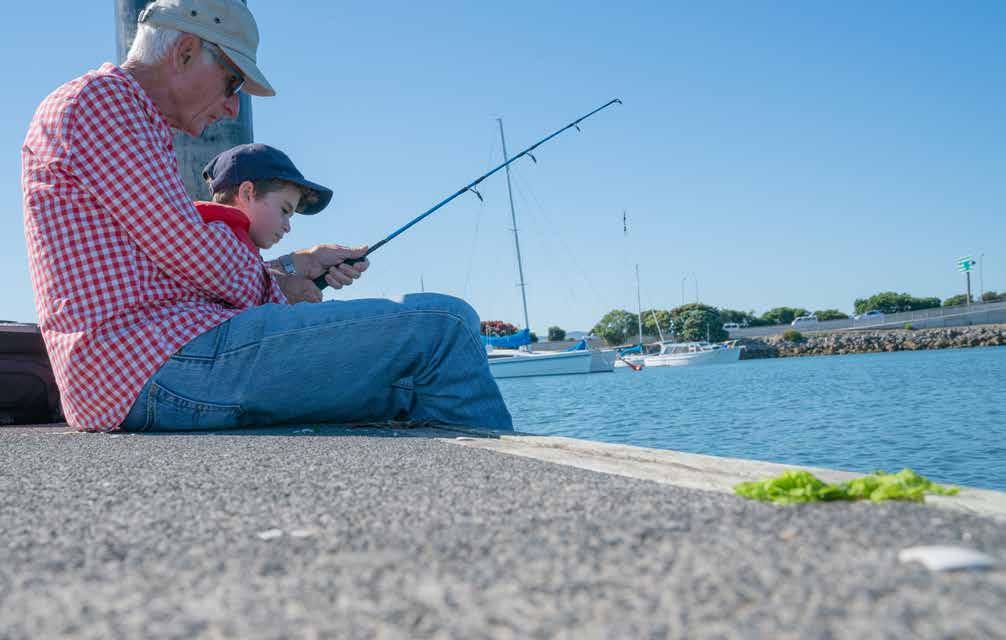
The revitalization of life at that time of year brought me a newfound love for angling. Like a kid on Christmas Eve, for an angler, the arrival of spring
enough. Fortunately for my old stripy prey, new hobbies have taken their toll on my
serotonin as I met and lost many personal best perch and brown trout from past seasons reinvigorated some clear, dark water with a breathless air, seemed too good not to drift dead smelt.
Hours passed uneventfully
wispy patch of raupo on the other bank. Keeping contact as my paddle-tailed lure
column, I felt a thud as it neared the bottom. I yelled out to Vaughan:
“If this is a perch, it’s big, you might want to grab my
My suspicions were correct, as I soon found
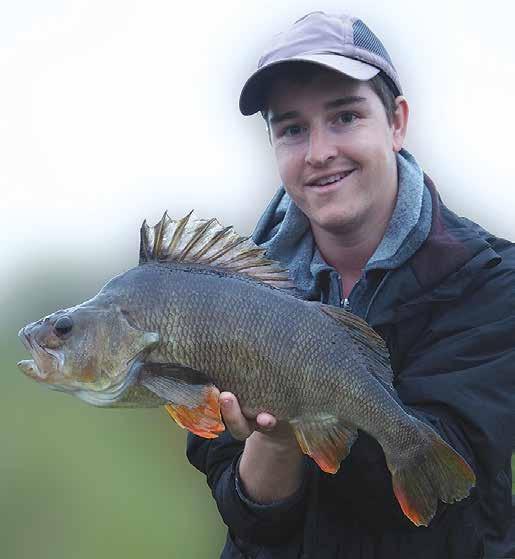
enthusiasm when it comes for semi-precious gemstones and locating fossils have currently diminished my passion for angling to the low priority list.
Rain, low pressure and dense cloud cover scream good perch catching conditions. I chose the evening of October 26 to season, as the weather was perfect. Once the kit was packed in the car, on was on the phone to my friend Vaughan Morrissey, peerpressuring him to join me for this expedition. I must confess, it didn’t take much persuasion to convince him to join me!
On arrival, the waterway was tranquil and full of promise. Memories of adrenaline, heartache and copious rushes of
some beautiful swims between Salix and Typha.
I decided to forgo my bait approach and rummaged in my softbait box for some 4g jig heads and a suitable paddle-tail. With my chosen slow to tempt a specimen stripy. Months without casting practice did not affect my accuracy, which under an overhanging willow sluggish but kept its dorsal my side of the bank. Once close to me, the perch woke up, tearing line and thrashing on the surface before pulling the hook.
“Oh well, it only looked Vaughan.
The light was fading fast, which increased our later, I made a cast to a
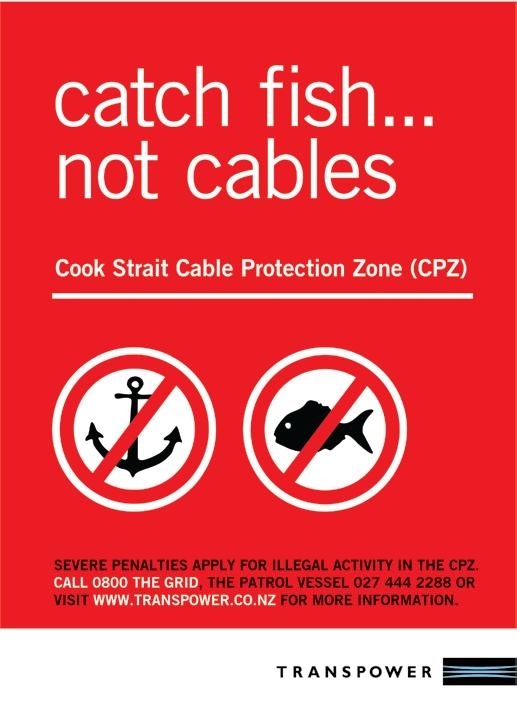

CREATING BETTER OUTDOOR PRODUCTS DESIGNED TO DELIVER AWESOME TO EVERYONE.
danced in the clear water a few metres from my rod tip.
seeing my prize safely contained at the bottom of my landing net even more. After a few shots and a quick weigh of 4lb, we watched
healthily swim off to the deeper water and under a weed bed to sulk, which I feel is the icing on the cake when targeting big perch. The sun behind the cloud was setting fast, hindering the chance of another bite for us. We said farewell to the river and each other but not before we planned our
I’m looking forward to this season of angling as the warmer months arrive. With salmon and big tench on the horizon, I will be sure to get amongst the best of it.
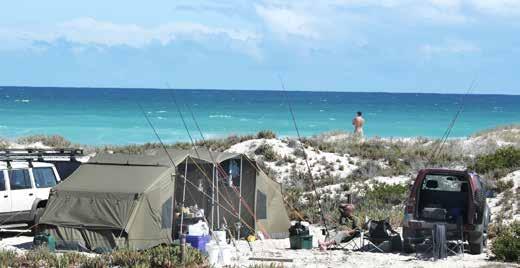
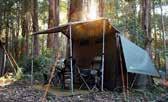

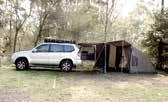
Total
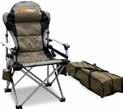

Rig are fussy crustacean feeders with a strict diet of paddle crabs but can often be caught on various types of prawn (cooked and raw) and type of bait, it also eliminates a lot of unwanted by catch, which you can sometimes and squid baits.
We are lucky in Nelson that there are so many great beaches to target rig: Kina
beach, Rabbit Island and my personal favourite the Blind Channel/ Back Beach are all productive areas. The channel is easy to access
Road, all the way down to the end of Tahuna Spit. Fish on an incoming tide from low in the morning and evening for best results and having a good long cast does make a difference.
When targeting rig I use a
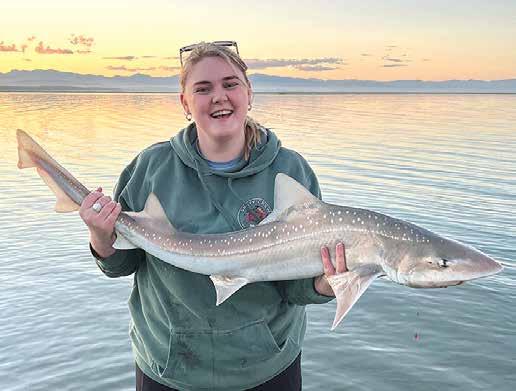

Laura-Alice

1 hook 100lb breaking strain
octopus hook. 100lb may seem heavy, however rig
skin can often damage your line quite easily, especially when they are thrashing coming into the shallows as you try to land them— the larger they become the more
try to use fresh paddle crab as bait as you can cut them in half and bind the legs onto the shank of the hook with bait elastic, making sure that the hook is well exposed.
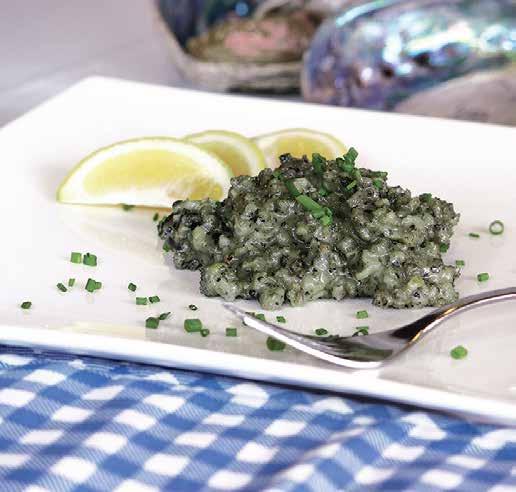
almost gone. Season with salt & pepper. Add cream and stir until it thickens. Serve with sourdough, hot buttered toast, or toasted ciabatta bread.
March, with November, December and January being the best months to catch them. This season so far has proven to be an excellent season already with my co-worker and fellow shark wrangler Laura-Alice Langridge and myself having nights landing multiple
few hours. Together with a stunning Nelson evening it makes for a great after-work activity. We release most
For someone looking at getting into targeting of
sharks, I would recommend getting yourself a good surf rod around 12-14ft with a decent long-cast spool reel able to hold at least 200m
hooks, 100lb trace, tapered shock leaders, breakaway sinkers, bait elastic, rod holder and a crab pot. All of which can be found at Hunting & Fishing Nelson and Richmond stores.
While the global Covid pandemic has impacted on international sales of our pāua delicacy, innovation that could save this valuable industry is at the forefront. The Pāua Industry Council has been aware of the health properties of the iconic shellfish for years and recently conducted highly scientific studies to gauge the extent of the medicinal e cacy of using pāua as a viral reductant in the war against COVID.
In a Double-blind study, Italian marine biologist Dr. A.B Alonyfoote and his girlfriend self-isolated on a remote beach with abundant pāua populations in knee-deep water. The two have been camping on the undisclosed beach since the first lockdown in 2020, eating fresh pāua and making home-brew seaweed beer and, to date, have tested negative for Covid. They are both visually impaired, which could be part of the reason why they have remained on the beach so long—they simply can’t find their own

way home.
Their discoveries have led to a new initiative, Pāua for Prevention, which manufactures masks from live pāua known as ‘antiviral attenuated masks’ or AVAMS. The wearer gradually ingests molecules from the live pāua that help build immunity while the shiny shell dazzles the
virus’s spike proteins so they can’t see where to attach. While still in the trial stage, results are promising and it appears the masks may also be useful in the fight against malnutrition.
Research continues into the e cacy of using seaweed beer as a form of birth control.

Three very interesting short media stories caught my eye recently, the most recent on the eve of the deadline for this issue.
An Auckland-based marine conservation group known as the Protect Rock Pools Committee has successfully persuaded the Ministry for Primary Industries (MPI) to consult a proposed S.186 temporary closure of a 360 metre wide coastal strip for approximately 29 kilometres of coastline from the southern boundary of the Cape Rodney—Okakari Point Marine Reserve (commonly known as the Leigh or Goat Island Marine Reserve) and the western boundary of the Tawharanui Marine Reserve, excluding Whangateau Harbour. The closure would apply to hand-gathering of all species of fish, aquatic life, or seaweed, except pāua, rock lobster, kina, cockles, pipis, dredge oysters, scallops, and tuatua. Add the two marine reserve closures and this new proposal represents a massive restriction on nearshore coastal fishing and hand-gathering.
‘Temporary’ in the context of this proposal is two years. Such temporary closures prohibit customary, recreational, and commercial fishing and, as noted in previous articles, they are far from being temporary. In Kaikoura, on the Wellington west coast and in the Bay of Islands, temporary closures were declared
wider ecosystem,” she says. Truth is, 244 submissions are hardly representative of the recreational fishing e ort deployed across the Hauraki Gulf, particularly in the summer months and during holiday seasons.
Second truth is, two years will undoubtedly stretch to more than two years.
”The feedback from tāngata whenua and the public highlights concerns around the long term sustainability of these four important fish species,” said Ms Taylor. A third truth is, all of the fishing grounds around Waiheke Island that are most accessible to recreational fishing are now o limits to the sector, including the resident locals. And perhaps the most relevant truth is that, other than for some very limited rock lobster catches, the Waiheke closure has little impact on commercial fishing.

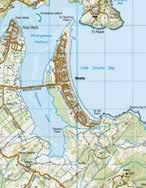
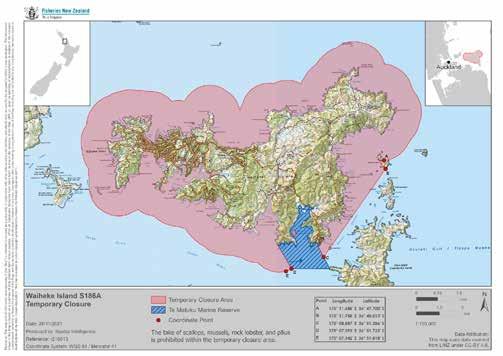
more than 15 years ago and are still in force. One of the more interesting aspects of this latest proposal is that the impact of closure will fall directly and only on recreational fisherfolk and in particular on the land-based harvesters. Across the water, and still in the Hauraki Gulf, the Waiheke Island scallop, mussel, rock lobster and pāua fisheries will close for a period of 2 years from 1 December. The temporary closure includes inshore waters around Waiheke Island out to a distance of 1 nautical mile o shore, and applies to customary, commercial, and recreational fishing.
Fisheries New Zealand director of fisheries management, Emma Taylor says Ngāti Pāoa, other Hauraki iwi, commercial fishing interests, recreational fishers, environmental interests, and the public were all consulted on the proposal. “We received 244 submissions with the majority supporting a closure. Closing these fisheries will help these important fisheries recover and support the health of the
So the decline of those ‘important fish species’ must be attributable to non-commercial fishing, and in the absence of a coherent noncommercial fishing strategy, the Ministry has persuaded a Minister to ban fishing —not to manage fishing, but to ban it.
The displaced e ort will move to the next most accessible fishing grounds. Choices for recreational fishers in the outer Gulf are becoming increasingly limited, particularly if they enjoy scallops. On Saturday, 11 September following a request from the Ngāti Hei Trust, the Minister for Fisheries and Oceans declared a closure to scallop fishing in an area extending along the east Coromandel coastline from Anarake Point to Ruahiwihiwi Point, and included Opito Bay.
A large part of Opito Bay had already been closed to commercial scallop harvesting by former Fisheries Minister John Luxton in 1999.
“My decision on the location and extent of the closed areas was made on the basis that

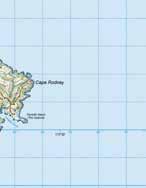
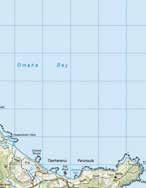
they should include the main scallop beds where non-commercial harvesting occurs. The closures do not extend into deeper water beyond the range of non-commercial diving and dredging; they recognise customary fishing interests; and have boundaries that are easily recognisable for compliance purposes.”
(An interesting aside here—despite the best e orts of some Whitianga locals, the perceived decline in scallop abundance could not be fully attributed to commercial scallop dredging. After all, a large part of Opito Bay and scallop beds elsewhere in the Bay of Plenty were closed to commercial, to become recreationalonly fishing grounds in 1999, which must mean that non-commercial fishing ultimately drove the alleged decline. The failure to properly monitor and manage non-commercial scallop
fishing caused the sector to lose their fishing rights to the most recent S 186 ‘temporary’ closure.)
Only a week after the temporary closure was declared, the mainstream media reported that, ’A two-year halt on commercial (and non-commercial) scallop harvesting o the Coromandel coast is a half-win for a group trying to protect kaimoana, as there are concerns it could put the squeeze on remaining scallop fisheries.’ A ‘half win’ doesn’t sound to be a very useful outcome and if you join the dots back down into Hawkes Bay and examine the consequences of a similar temporary closure, ostensibly made to ‘protect paua stocks’, you can see just how useless it will likely be.
On 24 November 2021, the Hawkes Bay media reported that the Te Angiangi Marine Reserve, established in 1997 and covering 446 hectares between the settlements of Aramoana and Blackhead, about 30 kilometres east of Waipukurau, is getting plundered by poachers since the local ranger retired last year. According to the locals quoted in the story, “the problems had worsened since a rahui on Waimarama, a beach to the north that has a two-year ban on taking pāua, was put in place in December last year”.
And so it goes—patches on a gaping wound are never going to be e ective. The e ort displaced by the plethora of ‘temporary closures’ is piling up in adjacent fishing grounds and will inevitably cause more concerns locally as stocks are serially depleted. And who stands for the recreational fishing sector? Seemingly not LegaSea. Their response to the Waiheke temporary closure announcement was – “It’s taken 10 months, but David Parker, the Minister of Oceans and Fisheries, has finally approved Ngāti Pāoa’s application for a rāhui (or temporary closure) for the harvest of crayfish, scallops, mussels and pāua from the waters around Waiheke Island,” which one must presume to be supportive. dwindling
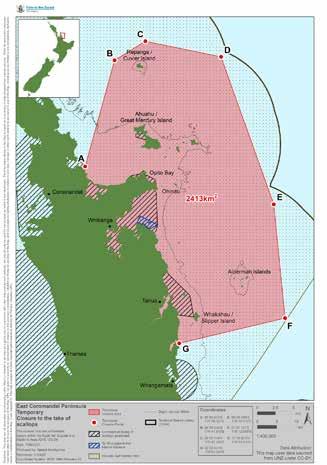
Slowly they turn, step by step, patch by patch; the Ministry and their supporters seem content to progressively restrict and even abolish recreational rights and opportunities. Anyone would think they are getting you mixed up with those commercial guys… next thing you know, you too will be under video surveillance. Oh, wait a minute, that commences in December with a trial in Wellington. Smile… you might be on candid camera.
<https://www.newshub.co.nz/ home/new-zealand/2021/11/mpifisheries-o cers-to-use-bodycameras-during-illegal-fishinginvestigations-following-surgein-violence-abuse-towards-sta . html>
email all your letters to
Dear Ed,
A 2 June Stuff article titled “Kea culls almost
another 19 October Stuff article “Poisoning a the terrible treatment of our native kea by successive governments but made no mention of the decimation of our kea population caused government bounty was paid by governments between
The killing of kea by government/DoC and OSPRI has continued right up to this day, even though the kea has been on the protected killing of kea during a carrot Dobson River area was published in the NZ Journal of Science, Volume 10 1967. Four kea and eight seagull were claimed to have died but, when I studied the

operation map, another dead kea was marked as being just over the operation boundary government “Smoke and active those days just as they are today.
The problem with both those Stuff articles is they don’t mention the toll those have had on our kea population since 1960. In a 2009 address to the National Pest Control Agencies were told by DoC, using several different equations, that 10% of kea could die in table shows us the 24 out of 199 monitored kea died and 2014. That is more than 10% and it doesn’t
Wairau/Beebys/St Arnaud was dropped just after the heaviest snowfall the area had had in 40 years. How many kea died because they
A 20 July Nelson Mail
in part, from a DoC report, “not all control operations
they not written up? Are DoC hiding relative facts that the public should be privy to?
Where did the Stuff Journalists who wrote the two articles mentioned at the beginning of my letter get their facts from. Why didn’t they thoroughly question DoC about the impact of
It appears investigative journalism is dead and buried in New Zealand. Maybe that’s why politicians and journalists are always at the bottom of our “most
the NZ Farmer weekly paper had an editorial by editor Jon Morgan titled “Green light comment at the beginning of the editorial reads, ‘The way I read this is that the media now have an out when it comes to publishing
right he was ... we now have a media circus.
Ron Eddy Nelson
Dear Ed, You are never too old to learn; At 69 years I learnt a new word —‘Phytotoxic’, which means toxic to plants. This word was found on the warning signs on drums of
largely unknown aspects of
Probably not. Would they
How many
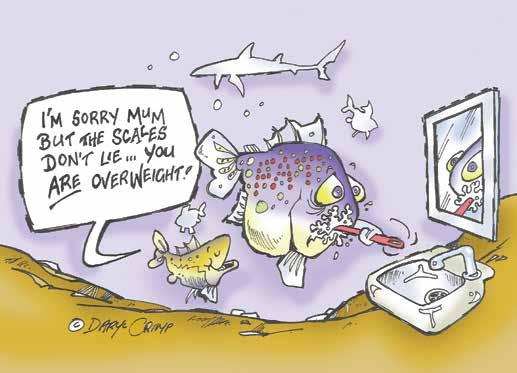
to plants and soil biota and this is hardly ever spoken of.
Scientist Mike Meads did a baits on soil biota in 1993
biota was destroyed around baits on the ground.
Plants are known to take
of them. Yet we still drop huge amounts of poison into our forests, mountains and waterways with increasing volumes every year. Do the people doing this actually know the damage they are doing to our countryside?
stop the drops if they did?
kills a large variety of native birds in huge numbers and they still keep poisoning, probably not.
Zero Invasive Predators[ZIP] are currently conducting a huge poison operation in the Franz Joseph region. Their specialty is dropping double the normal sowing rate of poison pellets on our countryside and then doing it again, effectively quadrupling the amount of poison spread around the work area. Can you imagine the damage this must do to
years will it take before we start to to see the damage appear in the mountains?
The poisoning needs to stop now, before the damage is permanent and unable to be reversed. Will the poison droppers be around to be held to account in the future for the damage they cause now?
Remember the term ‘Kauri Dieback’? Look it up. Similar damage will be appearing in other places in time to come.
C. Windley Hokitika10000XB / XITUS PRO 13’6” 6/12kg 3pce Surf
$199.99
The Shimano Beastmaster/13” Xitus is a Hunting & Fishing exclusive, and at $199.99 it’s a great deal packed with features, easy to cast and is a nice light rod which I found produces an easy 70-80 metre cast. After trialing it in various conditions I would recommend it as particularly good for calmer days on the beach, great for east
someone who wanted a good combo that was a solid step up from ‘entry-level’ as it’s a mix of quality/value, perfect for the holiday angler who
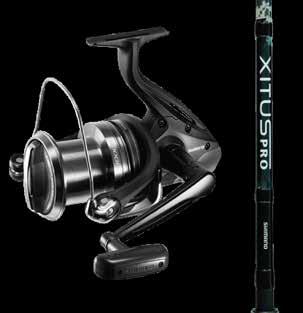
$799.99
The Saragosa 14000SWA XG features
Grappler BB type C S82H has a responsive Hi-Power X blank which can handle PE8 braid and cast lures up to 150g. The perfect combo to get
As endorsed by Tony Orton, Journey
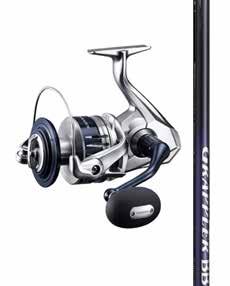
Ultegra CI4+ 14000 XTC COMBO/Surf
SHIMANO Twin Power
$899.99
The Twinpower XD 4000XG features 11kg of drag, X-Protect water resistance and an EVA power handle to drag even the biggest snapper from the allows for extra-long casts to get right up in the
As endorsed by Matt Watson, Ultimate Fishing
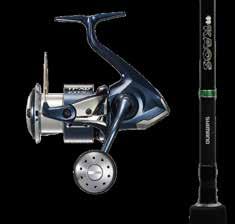
425BX 14’ 3pce Max Cast 225g see instore for more details
The Ultegra CI4 14000XTC reel featuring a CI4 carbon body and X protect water resistance is the premium surf reel in the Shimano range. Paired with the Surf Leader 425BX rod’s ultra-lightweight Spiral X, Hi-power X blank & SIC Low-rider guides
By Andrew Claridge, Hunting & Fishing, Nelson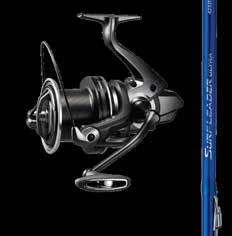
hunting experience. Next time you come over Takaka Hill to go hunting, keep an eye out for the little DoC kiosk when you arrive at the top of the hill entering the Cobb Valley. Inside the kiosk
Here in sunny Golden Bay our local NZDA branch has come up with a clever way to avoid situations like that and give all hunters a better
hunters’ intentions book alongside the DoC intentions book. FYI, the hunters’ intentions book has been there for more than 10 years!
It’s a great system for hunters, where you choose the general area you want
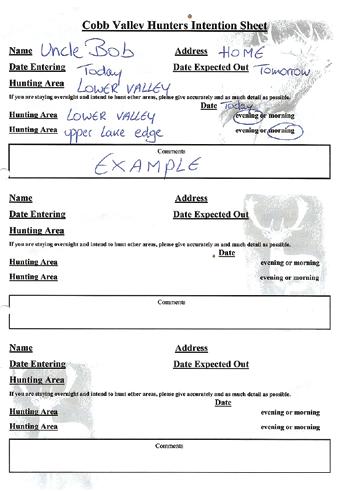
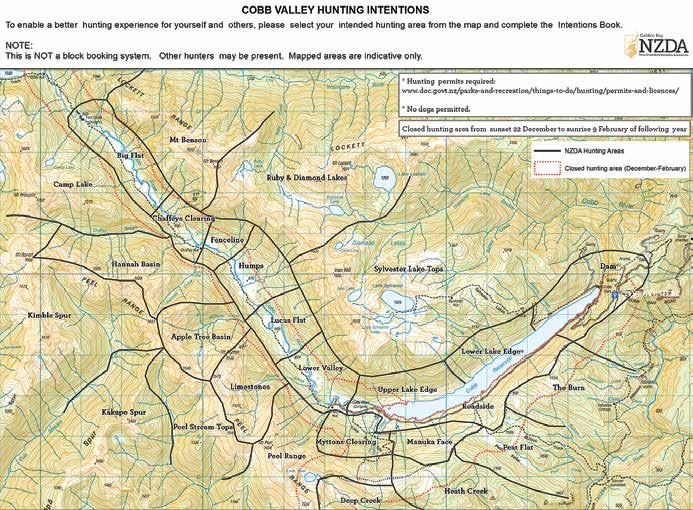
to hunt from the map on the wall and write down in the intentions book when, morning or evening, you are planning on hunting this area. By doing this, everyone can see the general area you are hunting and you understand where others are. This way we can avoid too many hunters ending up in the same area and improve everyone’s hunting experience.
We have spoken to our
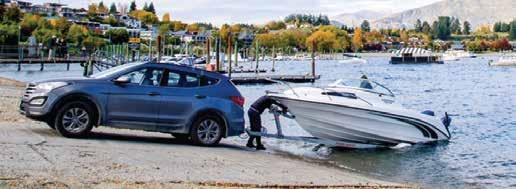
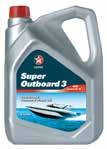


Takaka to get a ‘HUNTERS SIGN IN,’ sign put up when entering the Cobb Valley to inform, or remind hunters
the hunters’ intentions book upon arrival and departure. Obviously we can’t force people to use this system but we strongly recommend it if you want to give yourself and others a better hunting experience.
It would be great if hunters all around New Zealand used intentions books,
whether they are provided by DoC or NZDA, when hunting on public land because it’s not about giving away your favourite hunting spots, it’s about having enough information to support better and safe hunting for everybody.
By writing this article we also hope to inspire other NZDA branches and hunting clubs all around New Zealand to adopt a similar system for hunting on public land to help
improve everyone’s hunting experiences.
Next time you come hunting up the Cobb Valley, the hunters’ intentions book. This way we can all go home after a successful hunt to have a beer with our mates and tell lies about how far we walked and how many more animals we could have shot!
Happy hunting everyone.
My parents house at Pukenui Bay in the Marlborough Sounds was broken into in November and the lowlifes stole their boat. Unfortunately, it was not insured so it’s a big impact and they really would like it back.
It has been a tough year for my parents and they still are unable to move back into their house after the big slip in July.
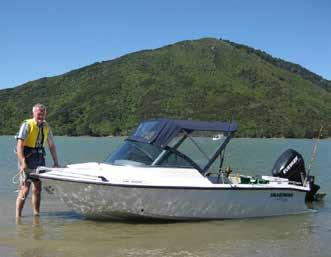
Can you please keep an eye out for a Smartwave 4000 with a 40hp Evinrude Etec. Any information leading to the recovery of this boat will be greatly appreciated. If you have seen this boat, know who has it or where it is, please contact me on:
021 242 6363 - Anonymous tips welcome.

